
Have you ever been lost for words or needed extra time to think about what to say? We’ve all been there.
Those natural pauses in conversation can easily become awkward or uncomfortable, though, which is where filler words come in. These are small words, expressions, or sounds that we use to “fill” those pauses in order to keep the conversation flowing and veil our momentary lapse.
Each spoken language has its own unique filler words. You’re probably familiar with fillers like “well,” “you know,” and “ehm” in English, but did you know that learning Hungarian filler words can greatly enhance your conversation skills as a student of the language?
In this article, HungarianPod101 will discuss fillers in more detail, introduce you to the top 10 Hungarian filler words, and teach you how to use them correctly.
Ehm, like, shall we get started then?

 Table of Contents
Table of Contents
- What are filler words and why do we use them?
- The Top 10 Hungarian Fillers
- Pros and Cons of Hungarian Filler Words
- How HungarianPod101.com Can Help You Reach Your Learning Goals
1. What are filler words and why do we use them?
Filler words are short, meaningless words or sounds we use in spoken language to fill in the silence during our conversations or speeches.
The most common linguistic function of filler words—also called “hesitation markers”—is to signal that we’re not done speaking yet. This is useful for when we need to pause and think about what to say next, as it lets the other person know not to interrupt.
You can find filler words in writing as well, though they tend to serve different functions. This is because, in writing, you are the only “speaker” and no one will cut you off. You simply keep writing. Fillers used in writing are more likely to serve as connecting, transitioning, or “softening” words. Here are some examples:
- alapvetően – “basically”
- igazából – “actually”
- említenem sem kell, hogy… – “needless to say that…” [Lit. “I don’t even have to mention it…”]
Expanding upon what we’ve covered so far, there are six main uses for filler words:
1) Pausing to give the speaker time to gather their thoughts
2) Speaking more indirectly in order to be polite
3) Approaching delicate/awkward topics gently
4) Emphasizing ideas
5) Providing clues about emotions or behaviors
6) Communicating uncertainty
| Another note: Be careful not to mix filler words with unprofessional expressions such as “thingamajig” or “whatshisface,” as this can cause you to lose credibility in others’ eyes. |
Now that you know what filler words are, you’re ready to start learning and practicing Hungarian filler words.

2. The Top 10 Hungarian Fillers
In Hungarian, a “filler word” is called töltelékszó. Broken down:
- töltelék – “filler”
- szó – “word”
Easy peasy.
Now, let’s dive in.
#1 Ööö(m) – “Uhm” / “Uhh”
This is one of the most common Hungarian conversation filler words. The elongated ö sound is pronounced similarly to the English filler “uhh” (or “uhm” when the m sound is produced). Keep in mind that it’s important for the Hungarian version to be elongated; a short ö sound would be interpreted as meaning the letter itself.
Ööö is most commonly used during school or work presentations, during which the speaker must continue for some time. This requires a structured train of thought, but it’s easy to get so caught up in your own presentation that you get carried away and need time to think about your next point. In this case, the filler ööö could be used to link two parts of your presentation together.
Of course, you can also use this Hungarian filler in your day-to-day conversations.
The most important thing in any context is not to overuse it! Your audience may become distracted—or even annoyed—if they hear you using it every five seconds.
| A: Tudod hova megyek ezen a hétvégén? – “Do you know where I’m going this weekend?” B: Ööö, a Kanári-szigetekre? – “Ehm, to the Canary Islands?”
|
#2 Hát / Nos – “Well”
In English, the word “well” is often used as a filler at the beginning of a sentence. It can denote hesitation or serve as a transition from one topic to another. The Hungarian filler words hát and nos are used in much the same way.
Hát literally means “back” in English (yes, as in the body part). It’s normally used to indicate that the speaker is about to share their decision about something, especially if their answer is “no.” It’s often elongated to hááát in this case.
| A: Jössz a ma esti buliba? – “Are you coming to the party tonight? “B: Hááát, elég sok dolgom van. Szerintem most kihagyom. – “Well, I have a lot of work to do. I think I’ll skip it this time.”
|
The Hungarian filler word nos has a slightly different nuance. As we said above, hát is used to introduce a decision; nos can be used when you haven’t decided yet.
| A: Jössz a ma esti buliba? – “Are you coming to the party tonight?” B: Nos, még nem volt időm gondolkodni rajta. Még átgondolom. – “Well, I haven’t had time to think about it. I’ll consider it.”
|
#3 Izé / Úgy értem – “I mean”
Izé literally means “thingy” in English, while úgy értem is the literal translation of “I mean.”
These Hungarian filler words—especially the very informal izé—are used mostly in common speech as explanatory phrases. Here’s what we mean:
Nem mondtam neki semmit. Úgy értem, akartam volna, de túl szégyenlős voltam. “I didn’t say anything to him. I mean, I wanted to but I was too shy.”
|

Nem hiszem, hogy olyan jól áll neked ez a szín. *rosszalló pillantást kap* Izé, káprázatosan nézel ki! “I don’t think that color suits you that much. *gets death look* I mean, you look gorgeous.”
|
Psst! Make sure to see our lesson Giving Your Opinion in Hungarian to learn the most useful phrases and expressions for doing so politely.
#4 Szóval – “So”
The Hungarian filler word szóval is normally used at the beginning of a sentence, though it’s not uncommon to encounter it in the middle instead. When used in the middle of a sentence, it links together two clauses or lines of thought.
| A: Szóval, hova szeretnél enni menni? – “So, where would you like to go eat?” B: Nem tudom, szóval mi lenne, ha te döntenél? – “I don’t know, so…how about you decide?”
|
Now that we’ve covered a few useful Hungarian filler words, let’s look at some that have very little linguistic value…
#5 Azt mondja, hogy… – “It says that…”
This filler does not have an exact equivalent in English, so we’ve just included the mirror translation.
This expression has literally zero meaning or value. We use it to gain time, like when we’re searching through an encyclopedia or phone book for someone, and it’s taking us a while to find what we need.
| A: Mikor tudunk együtt ebédelni? – “When can we have lunch together?” B: Hadd nézzem meg a naptáram! Azt mondja, hogy… kedden szabad vagyok. Az jó lehet? – “Let me check my calendar. It says… I’m free on Tuesday. Could that work?”
|
Learn all about Talking About Days in Hungarian and Talking About Your Plans!

#6 Ha úgy tetszik – “If you like”
This Hungarian filler is quite basic and adds no actual meaning to your core message. It’s just used for emphasis.
| Ha úgy tetszik, elmehetünk nyaralni idén nyáron. “We could go on a vacation this summer if you like.”
|
As you can see, it would be adequate to use this sentence without the filler.
| Elhívhatod megint randira, ha úgy tetszik, de nemet fog mondani. Barátja van. “You can ask her out again if you like, but she is going to say no. She has a boyfriend.” randira hívni – “to ask out” barát / pasi – “boyfriend” |
#7 Mármint – “Like”
This Hungarian filler word probably has even less value than the previous one (just like its counterpart in English, to be fair).
Its one redeeming factor is that it can help with sentence flow; using it allows you to pause and think for a second without your speech being interrupted. But honestly, most people just use it out of habit so that they have something to say mid-sentence.
| Nem tetszett a könyv, amit adtál. Mármint, nem hiszem, hogy ez a műfaj nekem való.“I didn’t like the book you gave me. Like, I don’t think this genre is for me.” tetszeni – “to like”könyv – “book”adni – “to give”műfaj – “genre” |
#8 Úgymond – “So to speak”
Yet another Hungarian filler used only to literally fill (either the silence or your sentence).
| Ezzel a hidratálókrémmel úgymond újjászületik a bőröd.“With this moisturizer, your skin is reborn, so to speak.” hidratálókrém – “moisturizer”újjászületni – “to be reborn” |
#9 Tulajdonképpen – “Actually”
| Tulajdonképpen én már hallottam erről a filmről. Azt mondják, jó.“Actually, I have heard of this movie. They say it’s good.” hallani – “to hear”film – “movie”jó – “good” |
#10 Végül is – “After all”
Végül is will be the perfect conclusion to our list of filler words in Hungarian. This filler functions like the English phrase “after all” but means something closer to “in the end.”
| A: Használhatom ezt a gépet? – “Can I use this machine?” B: Persze, végül is már befejeztem az edzésemet. – “Sure, after all, I’ve already finished my training.” használni – “to use” gép – “machine” persze – “sure” befejezni – “to finish” edzés – “training” |

3. Pros and Cons of Hungarian Filler Words
PROS:
- They help you keep your train of thought.
- They help your speech sound more fluent.
- They make you appear more laid-back and down-to-earth.
CONS:
- They are colloquial.
- Their overuse can annoy others or distract from your message.
- They might make you seem dishonest.
4. How HungarianPod101.com Can Help You Reach Your Learning Goals
So, how do you feel now? Relieved?
We hope you’re feeling ready to take on some Hungarian conversations! Instead of stressing over what to say next, you can throw in one of the Hungarian fillers you’ve learned today.
However, bear in mind that using them is rather colloquial. Whenever you can, try to avoid them. They should only be used to help you keep your line of thought and to make your speech more fluent. Still, it’s better to be prepared than scared.
Also, don’t forget that you can turn to us with any questions or suggestions, because HungarianPod101 is a big family of language learners and professional teachers helping each other out. You can get started by checking out our vocabulary lists and other free materials, but it’s best to join our community and gain access to our language lessons. We provide content ranging from Absolute Beginner to Advanced in order to maximize your Hungarian learning potential.
Before you go, don’t forget to comment below with your favorite Hungarian filler word.
Happy Hungarian language learning!

30+ Phrases to Express Your Love in Hungarian

We’ve all been in love, right?
In relationships, it’s crucial to express your emotions and to let the other party know how you feel about them.
But what if that other party happens to be a fine Hungarian man or woman? The last thing you want to do is let that gorgeous human you just spotted at a party get away.
Saying the right words at the right time is key, but this can be difficult enough in your native language—let alone a foreign one like Hungarian!
In this article, we’ll introduce you to various Hungarian phrases about love. You’ll learn how to flirt and express your initial affection, the best ways to say “I love you,” in Hungarian, and several handy Hungarian dating phrases. We’ll even get you ready to ask that fine snack to marry you! As a bonus, you’ll find several meaningful love quotes in Hungarian at the end of this article.
By the time you finish reading, you’ll be able to flirt with any Hungarian coming your way. What’s more, you’ll be able to make them swoon!
Ready to learn the best Hungarian love phrases? Love waits for no one, so let’s get started.

 Table of Contents
Table of Contents
- Confess Your Affection: Pick-up Lines & More
- Fall in Deeper: “I Love You,” & More
- Take it One Step Further: “Will You Marry Me?” & More
- Endearment Terms
- Bonus: Must-know Love Quotes
- How HungarianPod101.com Can Help You Reach Your Learning Goals
1. Confess Your Affection: Pick-up Lines & More
There are several stages of love, right? One does not ask a person to marry them after like two hours of having known each other (okay, maybe in extreme cases, but that is not the norm…). First, you express your affection to the other party, then you might flirt a little, and you might eventually go on dates with this person. And only after that does a relationship start to become more serious.
In this section, we’re going to introduce you to the most common Hungarian flirting phrases so that you can be prepared for courting. We’ll also show you some useful phrases you can try on your first date!
- → Of course, before you can use any of these Hungarian flirting phrases, you must start a conversation with the lovely person you’ve laid eyes on. Here are five tips on how to start a conversation in Hungarian.
A- Compliments
#1 “You are beautiful.” / Gyönyörű vagy.
- “beautiful” – gyönyörű
#2 “I love your smile.” / Imádom a mosolyod.
- “to love” – imádni, szeretni
- “smile” – mosoly
#3 “You are pretty.” / Csinos vagy.
- “pretty” – csinos
#4 “You are handsome.” / Helyes vagy.
- “handsome” – helyes, jóképű
#5 “I like you a lot.” / Nagyon tetszel.
- “to like” – kedvelni, tetszeni
B- Asking Him / Her Out
#6 “Would you go out with me?” / Eljönnél velem randizni?
- “to go out” – randizni
#7 “Can I buy you a drink?” / Meghívhatlak egy italra?
- “to buy” – venni (literal meaning)
- “to invite/offer” – meghívni
- “drink” – ital
C- Cheesy Pick-up Lines
#8 “Did it hurt when you fell from Heaven?” / Fájt, amikor leestél a Mennyből?
- “to hurt” – fájni
- “to fall” – esni
- “Heaven” – Menny
#9 “Hey, kitty. Do you have an owner?” / Szia, cica! Van gazdád?
- “kitty” – cica
- “owner” – gazda
#10 “I lost my number. Will you give me yours?” / Elhagytam a telefonszámomat. Megadod a tiédet?
- “(phone) number” – (telefon)szám
- “yours” – tiéd
Would you like some additional phrases for expressing your interest or making plans for a date? HungarianPod101 has you covered!

2. Fall in Deeper: “I Love You,” & More
One of the first words people learn in any language is the word for “love.” In Hungarian, there are two different words you can use:
- Szerelem refers to the connection between two people.
- Szerelmem translates to “my love” in Hungarian, and it refers to the person whom you love.
So, how do you say “I love you,” in Hungarian and further express your adoration?
There are several Hungarian love phrases you can begin using once your relationship becomes more intimate. If you’re ready to go all-in and say those three big words (or, in Hungarian, that one big word—you’ll see what we mean), you can use any of the following love phrases in Hungarian to make your move.
Note: Read through these carefully. We have a question for you at the end of this section!
#11 “I’m crazy about you.” / Megőrülök érted.
- “crazy” – őrült
#12 “I miss you.” / Hiányzol.
- “to miss” – hiányolni
#13 “I’m only thinking about you.” / Csak rád gondolok.
- “to think” – gondol(kod)ni
#14 “I want you here and now.” / Itt és most akarlak.
- “to want” – akarni
- “here” – itt
- “now” – most
#15 “I love you.” / Szeretlek.
See? What takes English three words to say takes Hungarian only one. This is due to the use of suffixes and conjugation in Hungarian, which lets us express the person and number with no additional words.
#16 “I love you very much.” / Nagyon szeretlek.
- “very” – nagyon
#17 “I love you too.” / Én is szeretlek.
#18 “I’m in love with you.” / Szerelmes vagyok beléd.
#19 “I can’t imagine my life without you.” / Nem tudom nélküled elképzelni az életemet.
- “to imagine” – elképzelni
- “life” – élet
- “without” – nélkül
#20 “I want to grow old with you.” / Veled akarok megöregedni.
- “to want” – akarni
- “to get old” – megöregedni
- “old” – öreg
Like English, Hungarian distinguishes between feeling “love” and being “in love.”
- → For more sweet romantic phrases, make sure to visit our free vocabulary list of 15 Hungarian Love Phrases for Valentine’s Day! 😉
Now, here’s our question for you:
How do you say “love” in Hungarian?
Give us the answer for the connection and for the person whom you love. Good luck!

3. Take it One Step Further: “Will You Marry Me?” & More
Nope, we haven’t forgotten about the “upper levels” that come afterwards. We’ve got you covered for all scenarios featuring you and your significant other. Just watch.
Now that you’ve been hitting your partner with the coolest Hungarian love phrases and have started building a stronger connection, they’ve officially fallen for you. It might be time to kick things up a notch.
You might consider moving in together, going on your first trip, or even getting married. Lucky you! To give you a hand, we’ve compiled the perfect love phrases for him/her in Hungarian.
#21 “I’d like you to meet my friends.” / Szeretném, ha megismernéd a barátaimat.
- “to meet” – találkozni
- “friend” – barát
#22 “Are you ready to meet my parents?” / Kész vagy találkozni a szüleimmel?
- “to be ready” – kész lenni, készen állni
- “parent” – szülő
#23 “Let’s go on a holiday together.” / Menjünk el nyaralni együtt!
- “holiday” – nyaralás
- “together” – együtt
- “Let’s go!” – Menjünk!
#24 “Do you want to move in together with me?” / Szeretnél velem összeköltözni?
- “to want” – akarni, szeretni
- “to move” – költözni
- “to move in together” – összeköltözni
#25 “Will you marry me?” / Hozzám jössz feleségül?
- “to marry someone” – hozzámenni valakihez
- “wife” – feleség
#26 “Let’s throw an engagement party.” / Dobjunk egy eljegyzési bulit!
- “to throw (a party)” – dobni, tartani
- “engagement” – eljegyzés
- “party” – buli, parti
#27 “Let’s get married.” / Házasodjunk össze!
#28 “We should buy a house together.” / Vennünk kellene közösen egy házat.
- “house” – ház
#29 “I’d like to have a baby with you.” / Babát szeretnék veled.
- “baby” – baba
#30 “I think I’m pregnant.” / Azt hiszem, terhes vagyok.
- /”pregnant” – terhes
- “to think” – gondolni, hinni
#31 “I’m so happy that we’re going to be parents.” / Olyan boldog vagyok, hogy szülők leszünk!
- “happy” – boldog

4. Endearment Terms
Now that we’ve covered the major stages of a romantic relationship, it’s time to go over some Hungarian terms of endearment. For most people, endearing nicknames are crucial in a relationship, and Hungarians are no exception.
Below, you’ll find several cute nicknames you can use with your new Hungarian boyfriend or girlfriend. Note that English has many endearment terms with a counterpart in Hungarian, which should make choosing your favorite one a bit easier!
- “honey“ / “sweetie” – édesem
- Since there is no specific Hungarian word for “sweetheart,” you could use édesem for that too.
- “baby“ / “babe“ – baba, bébi
- “my love“ – szerelmem
- For example: “Goodnight, my love,” in Hungarian would look like this: Jó éjt/éjszakát, szerelmem!
- “my heart“ – szívem
- “my precious“ – drágám
- “my treasure“ – kincsem
- “my shortie“ – kicsim
- “my kitty“ – cicám
- “my bug“ – bogaram
- “bunny” – nyuszi
- “hubby” – férjecském

5. Bonus: Must-know Love Quotes
In this section, we’ve collected a few Hungarian love quotes from famous Hungarian people, such as poets and writers. And we’re not going to lie, they had some very interesting insights about love and what it can “do” to people. Let’s see what thoughts and ideas they shared about love.
“What is real love?
When words between two people have the same meaning.”
– Sándor Kopátsy
Mi az igazi szerelem?
Mikor a szavak két ember között azonos értelmet nyernek.
– Kopátsy Sándor
“Even the silliness of love is wiser than the knowledge of philosophers.”
– Mór Jókai
A szerelemnek még bolondsága is nagyobb bölcsesség, mint a filozófusok minden tudománya.
– Jókai Mór
“It’s not true that love is blind. On the contrary, a lover sees such things in their beloved that others don’t notice.”
– László Feleki
Nem igaz, hogy a szerelem vak. Ellenkezőleg, a szerelmes olyasmiket lát imádottján, amiket más nem vesz észre.
– Feleki László
“I don’t know what it is, but it’s really good.
Its hurting is sweet, I let it hurt.
If it’s silly or a mistake, so be it.
If it’s love, please forgive me.”
– Gyula Juhász
Én nem tudom, mi ez, de jó nagyon.
Fájása édes, hadd fájjon, hagyom.
Ha balgaság, ha tévedés, legyen.
Ha szerelem, bocsásd ezt meg nekem!
– Juhász Gyula
“I don’t know what I’ve been so far,
Nor – do I know – what I’m going to be;
It depends on you if I’ll be a dark shadow
Or a bright beam.”
– Sándor Petőfi
Nem tudom, mi voltam eddig,
Ámde azt sem, mi leszek;
Tőled függ, hogy sötét árnyék
Vagy fényes sugár legyek.
– Petőfi Sándor
Make sure to visit our website for even more Hungarian quotes about love!
6. How HungarianPod101.com Can Help You Reach Your Learning Goals
You’ve reached the end of this article, which means you should now know the most common love phrases in Hungarian. We’ve covered everything from how to flirt to making your marriage proposal, and we’ve also introduced you to cute pet names and sweet love quotes.
But don’t forget that practice makes perfect. If you want to make that Hungarian boy or girl swoon, you must practice saying these love sentences in Hungarian out loud; you should also practice writing them down in case you feel like writing a love letter to your chosen one.
While studying these Hungarian flirting phrases, keep in mind that HungarianPod101 will always be there for you! We believe that with a supportive group behind you—such as our team and your fellow language learners—there’s nothing you can’t do.
Before you go: How do you say “I love you,” in Hungarian? Let us know below.

Hungarian Negation: Learn How to Say No!

Learning how to negate is an essential part of studying a language. How else would you tell your friend that no, you’re not going to do their homework for them? Or tell your grandma that you don’t want any more soup after the third round?
It’s through negation that we’re able to fully express our emotions, give our honest opinions, and set healthy boundaries.
In this article, you’ll learn…
- …how to make negative sentences in Hungarian.
- …how to give negative responses to questions.
- …how the double negative in Hungarian works.
- …some useful words of negation you can start using right away.
Don’t worry—it’s easy as pie! (That said, you might want to read our article on Hungarian word order before you dig in…)

 Table of Contents
Table of Contents
- Negating Statements, Questions, and Commands
- Giving a Negative Response to a Question
- Double Negatives
- Other Negating Words and Phrases
- How HungarianPod101.com Can Help You Achieve Your Goals
1. Negating Statements, Questions, and Commands
First, let’s cover the basic Hungarian negation rules and introduce you to the two most important words of negation in Hungarian: ne and nem.
A- Statements
To get a better idea of how to make a negative sentence in Hungarian, check out the example below:
- Ma este moziba megyek. / “I’m going to the movies tonight.”
- Ma este nem megyek moziba. / “I’m not going to the movies tonight.”
In Hungarian, the word nem means both “not” and “no.”
As you probably noticed, making a sentence negative in Hungarian is as simple as adding the word nem before the verb or adjective you wish to negate. Would you have thought Hungarian negation was this easy?
B- Questions
Now, how would you form a negative question or give a negative answer?
Here’s an example:
- Mész ma este moziba? / “Are you going to the movies tonight?”
- Nem mész ma este moziba? / “Are you not going to the movies tonight?”
- Nem, nem megyek (ma este moziba). / “No, I’m not going (to the movies tonight).”
As you can see, you simply put the negative word nem at the beginning of a question to make it negative. And to give a negative answer, you use the Hungarian equivalent of “no, I’m not” (nem, nem).
Here are some more examples, this time using the verb félni (to be afraid):
- Félek az egerektől. / “I’m afraid of mice.”
- Nem félek az egerektől. / “I’m not afraid of mice.”
- Félsz az egerektől? / “Are you afraid of mice?”
- Nem félsz az egerektől? / “Are you not afraid of mice?”
- Nem, nem félek az egerektől. / “No, I’m not afraid (of mice).”
C- Commands
Now that you know how to form negative statements and questions in Hungarian, let’s talk about how to give negative commands. Here are some examples:
- Ne érj az állathoz! / “Do not touch the animal.”
- Ne üljetek oda, gyerekek! / “Do not sit there, children.”
- Ne mondd ezt! / “Do not say that.”
There are two things you probably noticed:
1) Hungarian commands always end in an exclamation mark (rather than a full stop, like in English).
2) The Hungarian equivalent of “do not” is ne + the conjugated imperative verb.
D- Practice!
Based on what you’ve learned so far, try to translate and then negate the following sentences in Hungarian:
- ❖ “We are going out to have lunch.”
❖ “Did you write a book?”
❖ “Be afraid of a new language!”
Write your answers below in the comments section.

2. Giving a Negative Response to a Question
We touched on this briefly in the previous section, but we’ll cover it in greater detail here. This is an important topic, so we want to make sure you really get the hang of it!
Here are a few examples for you:
- Mérges vagy? / “Are you angry?”
- Nem, nem vagyok (mérges). / “No, I’m not(angry).”
- Hoztál esernyőt? / “Did you bring an umbrella?”
- Nem, nem hoztam (esernyőt). / “No, I did not (bring an umbrella).”
- Fogsz tanulni holnap? / “Will you study tomorrow?”
- Nem, nem fogok (tanulni holnap). / “No, I will not (study tomorrow).”

3. Double Negatives
Double negatives in Hungarian are not only not ungrammatical—haha—but they’re actually necessary in many negative sentences. This type of sentence is usually formed with a negative word (see them in greater depth in the next section) and nem.
Let’s see a few examples of sentences using double negation in Hungarian:
- Soha többet nem iszom. / “I’ll never drink again.“
This sentence implies that the thing we’re swearing not to do again has just been done. Without többet (“more”) this sentence would be more like a general statement, not a resolution or promise. See:
Soha nem iszom.
“I never drink.”
- Nem parancsol nekem senki. / “Nobody gives me orders.“
The two negatives here are nem and senki (“nobody”).
- Sehol nem maradok sokáig. / “I don’t stay anywhere for long.“
Here, the two negative words are nem and sehol (“nowhere”).
If you were to carry the double negative over into English, this would be like saying: “I don’t stay nowhere for long.” (But, of course, that would be ungrammatical.)
- Semmit nem ettem még ma. / “I haven’t eaten anything today.“
Semmit literally means “nothing.”
- Soha többet nem leszek alkalmazott. / “I’ll never be an employee again.”

I never drink.
4. Other Negating Words and Phrases
As you saw in the previous section, double negatives in Hungarian are extremely common (and even necessary in some cases). There are several different negating words and phrases that are used in conjunction with nem to make a sentence negative.
Here are the most common Hungarian negating words and phrases, along with example sentences. Keep in mind that nem is required for every sentence, except for the first one.
| alig barely | Alig ismerlek. I barely know you. |
| szinte soha hardly ever | Szinte soha nem találkozunk. We hardly ever meet. |
| soha never | Soha nem találkozunk. We never meet. |
| soha többé no more | Soha többé nem fogom ezt eltűrni. I will endure this no more. |
| senki nobody | Senki nem marad délután 5 után. Nobody stays after 5 o’clock p.m. |
| sehol nowhere | Sehol nem találom a szemüvegemet. My glasses are nowhere to be found. |
| semelyik…sem neither…nor | Semelyik nem tetszik, sőt, rám sem jönnek. Neither of these are to my taste nor do they fit me. |
| semmikor never | Neked soha nem jó. It is never good for you. |
| semmiért for nothing | Nem fogok a semmiért dolgozni. I won’t work for nothing. |
| senkiért for nobody | Senkiért nem fogom megégetni magam. I will do overtime for nobody. |

5. How HungarianPod101.com Can Help You Achieve Your Goals
Now that you’ve learned all about Hungarian negation, you should be able to tell your gran “no” when she wants you to eat that fifth slice of cake after a full three-course meal.
But if there’s anything we neglected to cover, or if you still have questions about something we did cover, let us know in the comments below. We’ll be glad to help and offer additional explanations.
By the way: If you see a fellow Hungarian student struggling with something and think you can help, feel free to offer an explanation yourself. After all, we’re an encouraging family of Hungarian learners striving to help each other thrive!
Don’t forget to comment your translation and negation of these sentences down below!
- ❖ “We are going out to have lunch.”
❖ “Did you write a book?”
❖ “Be afraid of a new language.”
Happy language learning!

How Long Does it Take to Learn Hungarian?

What’s one of the first things you consider when determining whether to learn something new? If you’re like most people, you probably look at how long it will take to learn, how difficult it is, and whether it’s worth the investment.
If you’re reading this, odds are you want to start learning Hungarian but have not yet committed. You might be asking the all-too-common question: How long does it take to learn Hungarian?
While there’s no solid timeline for how long this process takes, there are estimates for each level (beginner, intermediate, and advanced) based on data from the Foreign Service Institute (FSI). In this article, we’ll take a look at these rough estimates and give you some useful tips on how to learn Hungarian faster!
Still, you must remember that there are no super-shortcuts that enable you to learn a whole language in just a few weeks. If you’re determined to learn a language, you must put in the time and effort. If you’re motivated and willing to learn consistently, great results are guaranteed.
If you’re ready to take on the world and study Hungarian, what are you waiting for? The magic recipe for how to learn Hungarian fast is only a few scrolls away.

 Table of Contents
Table of Contents
- Factors That Will Affect Your Learning Progress
- How Long Does it Take to Achieve Beginner Level?
- How Long Does it Take to Achieve Intermediate Level?
- How Long Does it Take to Achieve Advanced Level?
- How HungarianPod101.com Can Help You Achieve Your Goals
Factors That Will Affect Your Learning Progress
The FSI groups languages into four categories, based on how difficult they are for a native English speaker to learn. Level I languages are the easiest, while Level IV languages are the most difficult.
Can you guess which category Hungarian belongs to?
Well, we have to break it to you: Hungarian is considered a Category III language, which makes it a rather difficult one to learn. But this doesn’t make it impossible! It will just take you a bit more time and effort to learn than it would take for you to learn French, for example.
The actual speed of your Hungarian learning will depend on a variety of factors, such as:
- How much time you put into your studies
- Your study methods
- Your environment
- Your motivation and goals
Now, let’s dive a little deeper!
How Long Does it Take to Achieve Beginner Level?
The average English speaker would need to spend 1 hour studying each day for approximately 12 weeks in order to reach the beginner level.
However, we must emphasize that this number—and the others mentioned in this article—is merely an approximate to give you a basic idea of what to expect.
With that in mind, how much time do you think it would take you to achieve the beginner level of Hungarian?
If your answer is “longer than I would like,” remember that HungarianPod101.com has plenty of fun and practical resources for learning Hungarian. Check out the following pages to speed up your progress and stay motivated:
- The Only Hungarian Pronunciation Guide You’ll Ever Need
- Hungarian Alphabet
- Vocabulary Lists
- Top 15 Tips to Remember Words When Learning Hungarian
- Level 1 Hungarian Pathway
- HungarianPod101 YouTube Channel (beginner videos)
And here are some additional steps you can take to make the most of your study time:
- Prepare flashcards to make those words stick and carry them with you everywhere.
- Learn the basic Hungarian sentence structure (hint: it’s usually S-V-O).
- Watch short videos at a slow speed.
Finally, here are some skills and knowledge you’ll have by the time you reach this level:
- You’ll have memorized the Hungarian alphabet.
- You’ll know the pronunciation of each letter.
- You’ll know some key vocabulary and phrases for everyday interactions.

How Long Does it Take to Achieve Intermediate Level?
If you continue to study for 1 hour each day, you should be able to reach the intermediate level in approximately 28 weeks.
At the intermediate level, you will…
- …be able to read short and simple texts, and understand the main points.
- …have a larger vocabulary than you did at the beginner stage.
- …be able to hold basic conversations at a slow speed on topics that are familiar to you.
Of course, your exact skillset at this level may vary depending on the speed of your progress. This is just a rough outline of what’s expected of intermediate-level learners.
There are several things you can do at this point to make the most of your study time. To give you some inspiration, here’s how to learn Hungarian quickly using a variety of tools:
- Broaden your vocabulary, especially on niche topics that fascinate you or relate to your daily life.
- Read Hungarian newspapers or blogs; this will further expand your vocabulary and give you insight into Hungarian culture and society.
- Watch Hungarian YouTube channels or Netflix shows with English subtitles.
- Listen to Hungarian podcasts on your topics of interest.
- Go through HungarianPod101’s Level 2 Hungarian and Level 3 Hungarian pathways.
At this point, we can’t stress enough how important it is to listen a lot, practice your pronunciation often, and keep a dictionary with you any time you read. The journey from beginner to intermediate level will involve expanding your vocabulary and gaining a better understanding of how Hungarians speak and converse with each other. By actively immersing yourself in different forms of Hungarian media, you can speed up your progress and develop these new skills faster.
As mentioned in our bullet list, you should read plenty of Hungarian blogs, magazines, and newspapers. Keep a dictionary handy, so you can look up any unfamiliar words and note them down in a journal to study later. Having a written record of which words you’re struggling with is a great way to plan your next steps forward.
Newspapers, in particular, are a great reading source if you want to develop a more versatile vocabulary. You can read up on all kinds of modern, trending topics such as politics, coronavirus, and the labor market. You can also read newspapers or blogs specific to Budapest, the capital city of Hungary; this is a great idea if you plan on visiting the city in the near future!

How Long Does it Take to Achieve Advanced Level?
Reaching the advanced level means that you’re finally fluent in Hungarian. According to the FSI, reaching this level of fluency will take you about 44 weeks (or 1100 hours) if you study for an hour every day.
This is a huge time commitment, but if you’re persistent, you can become fluent in Hungarian!
The most common mistake language learners make is giving up. When you reach a plateau or feel like it’s taking you longer than it should to reach the next level, it’s easy to get discouraged. But! Just because you missed a few days of learning because you had other, more important things to do (let’s say, job-related), don’t beat yourself up. Just get back on track as soon as possible, and forget the setback even happened.
You’re studying for yourself, by yourself, so it takes a large amount of willpower and motivation to be persistent with your lessons. Just remember that it’s okay to fall off the wagon sometimes—as long as you always get back on!
Here are a few tips on how to learn the Hungarian language as you journey from intermediate to advanced:
- Study field-specific words, such as business terms or medical expressions, to keep your vocabulary varied.
- Watch Hungarian shows in different genres: crime shows, sitcoms, reality shows, etc.
- Start reading books in Hungarian; start small, and gradually work your way up to larger books.
- Download Hungarian language learning apps and visit forums so you can chat with fellow language learners.
- Go through HungarianPod101’s Level 4 Hungarian and Level 5 Hungarian pathways.

How HungarianPod101.com Can Help You Achieve Your Goals
There you go: a few tips for learning Hungarian fast and easy. We hope we managed to cover everything you want to know about how long it will take to learn Hungarian, but don’t hesitate to reach out if we missed something—we’ll be glad to help.
Remember that there are no studying barriers you cannot overcome! With HungarianPod101, you have a supportive group to back you up every step of the way. We provide you with pre-assembled study materials that have been tried and tested, as well as forums where you can ask questions and chat with other HungarianPod101 members.
We’ll be back soon with another useful, practical article—stay tuned and good luck with your studies!

The Top 30 Most Common Hungarian Proverbs and Idioms

Have you ever found yourself in a situation where the perfect proverb could have hit hard like a meteor and left everybody speechless? We’ve all been there. But at HungarianPod101.com, we know that the words don’t always roll off the tongue so easily—especially when you’re trying to speak a foreign language!
In this article, we’re going to cover thirty of the most common Hungarian proverbs and idioms. We’ve divided them into three categories, so you’ll find proverbs and idioms on life, love, and even money. These are phrases you’ll hear often while in Hungary, so memorizing them and learning how to use them will really help your language skills shine in any situation.
- → For even more great phrases to practice, we recommend checking out our free vocabulary list of Essential Idioms That Will Make You Sound Like a Native Speaker!
And remember: As you learn these Hungarian sayings, you’re never alone! You can always reach out to us or your fellow Hungarian language learners for help or motivation. We’re all in this together.
Now, let’s get started.

 Table of Contents
Table of Contents
- Hungarian Proverbs About Life
- Hungarian Proverbs About Love
- Hungarian Proverbs About Money
- How HungarianPod101.com Helps You Achieve Your Language Goals
1. Hungarian Proverbs About Life

Hungarian proverbs about life convey wisdom about how to live well. Learning these proverbs can help you gain a better understanding of how Hungarians view life in general, and provide you with more insight into the Hungarian culture.
Below, you’ll find ten Hungarian proverbs about life. For each one, we’ve included an English translation and information about what it means and how to use it.
1. A nagy hal megeszi a kishalat.
- Literal Translation: Big fish eat the small fish.
- English Equivalent: Men are like fish; great ones devour the small.
Meaning:
Small organizations and insignificant people tend to be swallowed up or destroyed by those that are greater and more powerful.
Usage:
This proverb would be perfect if you wanted to warn someone that, if they’re not strong enough (figuratively speaking), they’ll be trodden over by others. You know… “Eat or be eaten.”
2. A hazug embert hamarabb utolérik, mint a sánta kutyát.
- Literal Translation: They catch the man who lies sooner than the limping dog.
- English Equivalent: A lie has short legs.
Meaning:
Your lies will come to light sooner than you think.
Usage:
You might use this proverb, for example, in a shady situation where you suspect that the other party is lying. It would put a bit of pressure on them.
- → While you’re here, see our lesson on the Hungarian slang term for the act of lying!
3. Az idő minden sebet begyógyít.
- Literal Translation: Time heals all wounds.
Meaning:
You just have to be patient, and all sorrow and sadness will go away in time.
Usage:
You could use this sentence, for instance, if one of your friends was trying to get over a breakup.
4. Ki mint vet, úgy arat.
- Literal Translation: He who sows reaps.
- English Equivalent: As you sow, so shall you reap.
Meaning:
The way you behave in life will determine the treatment you receive from others.
Usage:
Imagine one of your friends did somebody wrong, and then something bad happened to them as well. You could then mention this proverb to them as a sort of life lesson. Because as we all know…what goes around, comes around.
5. Aki mer, az nyer.
- Literal Translation: He who dares, wins.
Meaning:
If you do not try—or dare—you’ll never succeed, because you did not give yourself the chance to do so in the first place.
Usage:
You could use this proverb to encourage somebody who needs that little extra push to take a leap that might result in something great.
6. Aki nem dolgozik, ne is egyék!
- Literal Translation: Those who do not work should not eat.
- English Equivalent: He who does not work, shall not eat either.
Meaning:
You have to work for the prize. If you didn’t do anything to earn it, you don’t deserve it.
Usage:
This one is very simple. It’s quite popular among Hungarian mothers, who say this to their children when they haven’t done their chores—or anything at all, to be fair—but still come down to have lunch as though they “deserve it.” But it’s only said as a joke, of course.
7. Ha nincs ló, jó a szamár is.
- Literal Translation: If there is no horse, a donkey will do as well.
Meaning:
This proverb refers to a situation where you know that something better exists, but you decide to settle for what you have even if it’s not as good.
Usage:
This might be a good Hungarian proverb to insert in a light, teasing friend-to-friend conversation when your pal goes to prom with someone they don’t fancy that much because their real crush did not invite them.
8. Ki tudja, mit hoz a holnap.
- Literal Translation: Who knows what tomorrow will bring?
Meaning:
You never know what opportunities you’ll have in the future, so you must always keep hoping for a better day. You cannot give up.
Usage:
Here’s another encouraging Hungarian proverb. You could use this phrase to give somebody a pinch of hope when they’re ready to give up on something, just because things haven’t worked out so far.
9. A cél szentesíti az eszközt.
- Literal Translation: The purpose consecrates the means.
- English Equivalent: The ends justify the means.
Meaning:
If your purpose is something noble or important, you’re allowed to reach it in any way, using any means.
Usage:
Imagine you’re about to do something morally questionable, like telling your sibling that the new ice-cream doesn’t taste that good, just so you have more left for you. Repeating this Hungarian proverb in your head like a mantra might give you a little bit more courage…and ice-cream. It would be a way of telling yourself that ice-cream is very important, so telling lies is “okay” in that situation.
10. Ne igyál előre a medve bőrére!
- Literal Translation: Don’t drink on the bear’s skin in advance.
- English Equivalent: Don’t count your chickens before they hatch.
Meaning:
Don’t celebrate something good too soon, because it might not turn out the way you think it will.
Usage:
The night before your state exam, you meet up with your friends and they raise their glasses to you, the “newly-grad genius.” You must tell them not to drink on the bear’s skin in advance, because you haven’t graduated yet and nothing is for sure.

2. Hungarian Proverbs About Love
Hungarian proverbs about love are just as abundant and necessary as those about life. Using the right proverb at the right time can get you some bonus points in your relationship or help you better express your love. Below are the most common proverbs in Hungarian about love, each one relatable and full of wisdom.
Remember that you can find even more love-related words and phrases on our list of Hungarian Quotes About Love and in our lesson on Three Ways to Say “I Love You” in Hungarian!
11. A szerelem vak.
- Literal Translation: Love is blind.
Meaning:
You cannot think clearly and rationally when you’re in love.
Usage:
This is a great phrase you can use to console a friend while they’re going through a hard time in their relationship.
12. Az ellentétek vonzzák egymást.
- Literal Translation: Opposites attract each other.
Meaning:
This one is straightforward. People who are utterly different in character often complete each other, like Yin and Yang. Differences give a relationship extra life and spice. If you always agree on everything, chances are you’ll become bored with the relationship over time.
Usage:
You may hear this proverb used when someone is trying to understand how two completely different people could be in a relationship with each other.
13. Soha szerelem sóhajtás nélkül édes nem lehet.
- Literal Translation: Love without sighs can never be sweet.
Meaning:
Love that is without hardships cannot last, as it would be rather boring that way. Also, going through hardships together is the test of true love; if you can weather the storms, your love is likely to last.
Usage:
If your friend is having their usual rant about their significant other, you can comfort them with this easy Hungarian proverb. Help them remember that a little rain is needed to see the rainbow.
14. A szerelemben több a keserű, mint az édes.
- Literal Translation: In love, there’s more bitterness than sweetness.
Meaning:
This one basically means that you have to work for someone’s love to make a relationship last. It doesn’t come easy, and it’s not always pleasant.
Usage:
Searching for the perfect Hungarian proverb to cheer up a friend who’s just had an argument with their love? This is the one. Just tell them it’s normal and that it will get better.
15. Hideg kéz, meleg szív.
- Literal Translation: Cold hand, warm heart.
Meaning:
If someone is strict with you, it usually means they just want the best for you.
Usage:
The funny thing is, this proverb is mostly used in a way unrelated to its real meaning. Hungarians say this when a person’s hand is literally, physically cold. So, if you touch someone’s hand and it’s like an icicle, saying this phrase is a nice way to warm their heart.
16. Nincsen rózsa tövis nélkül.
- Literal Translation: There is no rose without thorns.
Meaning:
Nothing and nobody is perfect.
Usage:
If you’re having a tough conversation with a friend or significant other, just recall this Hungarian proverb.
17. A szerelem a bölcset is vakká teszi.
- Literal Translation: Love makes even the wise blind.
Meaning:
Love can fool anyone (even the smartest of people), making them irrational.
Usage:
You can use this proverb if one of your friends—who you thought was the wisest and smartest person you knew—fell in love hard and blind.
18. Kenyér és bor nélkül meghűl a szerelem.
- Literal Translation: Without bread and wine, love gets cold.
Meaning:
Love needs to be cherished and the fire kept alive, otherwise two people will fall out of love.
Usage:
If you know a couple that’s been together for a looong time, this might be a great, eye-opening piece of advice for them.
- → Need to keep your own romance alive? Check out our list of 15 Love Phrases for Valentine’s Day and the Top 15 Compliments You Always Want to Hear!
19. A harag és a szerelem a legrosszabb tanácsadók.
- Literal Translation: Anger and love are the worst advisors.
Meaning:
When you’re angry or in love, you cannot think straight. It’s better to act only once you’ve calmed yourself down and cleared your thoughts.
Usage:
If a friend is trying to make a major decision while they’re either angry or blindly in love, you may want to use this Hungarian proverb to open their eyes and encourage caution.
20. Álomban és szerelemben nincs lehetetlenség.
- Literal Translation: In a dream and love, nothing is impossible.
Meaning:
Love can defeat anything and makes everything possible.
Usage:
You can encourage anybody with this saying. If they have a big dream they want to make reality or have a relationship issue that needs to be resolved, you can empower them by emphasizing that nothing is impossible if they set their mind to it.

3. Hungarian Proverbs About Money
Because Hungarians value and cherish their money quite a lot, there are plenty of Hungarian proverbs about money for you to learn. Below, we’ve listed the ten most common ones.
- → Want more? Here are the best Money-Related Expressions for Everyday Life!
21. Sok kicsi sokra megy.
- Literal Translation: Lots of ‘small’ adds up to one ‘big.’
Meaning:
Here’s a prime example of that money-cherishing trait we mentioned. This proverb teaches that we should not be greedy; if we’re patient, great things will come to us eventually. It’s just a matter of enough small things accumulating to become something better.
Usage:
Imagine your child or nephew/niece finds a few coins inside the couch. You could help them value that little bit of money by saying this proverb to them, convincing them that if they cherish the small amount they gained it will be rewarding in the future.
22. Az idő pénz.
- Literal Translation: Time is money.
Meaning:
Time is the only thing that we cannot get more of; it only lessens, so we must not waste it.
Usage:
If somebody is wasting your time, this proverb is a great (though maybe a bit harsh) way to let them know.
23. Pénz beszél, kutya ugat.
- Literal Translation: Money talks, dog barks.
Meaning:
With money, everything is possible.
Usage:
We hope you’ll never use this Hungarian proverb in such a context, but it’s a perfect way to introduce a bribe and let someone know you’re about to pay them off.
24. Ki korán kel, aranyat lel.
- Literal Translation: The early bird catches the worm.
Meaning:
Those who are vigilant and ready to jump at opportunities are the ones who succeed.
Usage:
If you struggle to wake up early in the morning, going to bed with this thought in mind might help you wake up easier the next morning.
25. Nem mind arany, ami fénylik.
- Literal Translation: Not all that glitters is gold.
Meaning:
You shouldn’t be fooled by superficial things, because they might not be as good as they appear to be.
Usage:
If someone you know is about to jump at an opportunity that seems too good to be true, you can offer them friendly advice using this proverb. It will encourage them to think twice before taking that thing at face value.
26. Ismerik, mint a rossz pénzt.
- Literal Translation: He is well-known like bad money.
Meaning:
This phrase is used to describe someone who is so infamous that their true character is common knowledge.
Usage:
If someone close to you is starting to become associated with someone you know is not a good person, you can use this phrase to let them know.
27. A pénz nem a fán nő.
- Literal Translation: Money doesn’t grow on trees.
Meaning:
You shouldn’t spend your money recklessly.
Usage:
Hungarian children often hear this phrase after begging their parents for something at the toy store!
28. Az becsüli a pénzt, kinek körme kopik utána.
- Literal Translation: Those who appreciate money broke their nails for it.
Meaning:
You can only truly appreciate money if you worked hard for every penny.
Usage:
Next time you encounter an arrogant person who won’t get off their high horse because of their easily-come money, you could use this Hungarian proverb to put them back in their place.
29. Annyi pénze van, mint békán a szőr.
- Literal Translation: He has as much money as a frog has hair.
Meaning:
Somebody is broke.
Usage:
If you want to joke about your financial state (because what’s healthier than a little self-deprecation?), you could say this Hungarian proverb to describe your situation to your friends.
30. Kinek nincsen pénze, ne menjen piacra!
- Literal Translation: He who hasn’t money, shouldn’t go to the market.
Meaning:
Those who are not qualified to do something, shouldn’t do it.
Usage:
In addition to its obvious correlation with actual money and markets, this proverb can also refer to any situation where someone is unqualified to do something. For example, you could use this phrase at work when somebody tries to perform a task they weren’t trained for and messed it up.

4. How HungarianPod101.com Helps You Achieve Your Language Goals
Now that you know quite a few old Hungarian proverbs and idioms, you’re well-equipped to handle a variety of situations—and impress native speakers at the same time! Which of these Hungarian sayings is your favorite, and why?
We hope you enjoyed this article, and that you’ll continue to explore the HungarianPod101.com website for more great content. Here, you’ll find so many fun and effective learning materials to help you reach your goals. To give you just a sample:
- Vocabulary lists
- Hungarian dictionary
- Audio and video lessons
You can also visit the HungarianPod101 YouTube channel to watch educational videos by our fun and energetic hosts. We regularly post new videos, so there’s always something to watch!
Know that you’re never alone on your language learning journey. You can always reach out to us or your fellow language learners for assistance or encouragement.
Happy learning!

Hunglish: English Words in the Hungarian Language

Over the years, globalization has made it more feasible than ever for countries all over the world to connect with each other. This interconnection allows different cultures and languages to influence each other, and major languages (such as English) have left an impression on countless other world languages. Nowadays, it’s increasingly common for languages to adopt entire English words and phrases.
There are quite a few English words in the Hungarian language, classified as either loanwords or Hunglish.
- Loanwords are words that have been integrated into the language with their original English meaning intact.
- Hunglish refers to English words that have entered the Hungarian language with different meanings or nuances.
And it’s not a one-way road! English has also taken foreign words from other languages, and you can find a few Hungarian words in English, too.
In this article, we’re going to show you how Hunglish works, as well as which words English and Hungarian have exchanged among themselves over the years.
Let’s get started.
 Table of Contents
Table of Contents
- Introduction to Hunglish
- Hunglish Examples
- English Words in Hungarian
- How to Say These Names in Hungarian
- English Words Derived From Hungarian
- English Words Derived From Other Languages
- How HungarianPod101.com Can Help You Learn More Hungarian
Introduction to Hunglish
As the name suggests, ‘Hunglish’ refers to the mixing of Hungarian and English by native Hungarian speakers. While Hunglish normally has to do with incorporating English words or phrases into the language, it can also refer to the use of grammatically incorrect Hungarian sentences due to English influence. This phenomenon has been around for quite some time, but has been most prominent in the past five to ten years.
There are two types of Hunglish:
1. English words and phrases officially implemented into Hungarian vocabulary.
2. English words and phrases unofficially implemented into Hungarian vocabulary.
A good example of the latter is when Hungarians insert English expressions or words into the middle of a Hungarian sentence.
Though more and more Hungarians—especially the younger generations—speak English to some extent, the language is not extremely popular in Hungary. Because so few people speak English here, most Hungarians do not have much exposure to the language and tend to make grammatical mistakes when they do use it. Whenever they’re unsure about English grammar, they’re prone to rely on the grammar of their mother tongue.
You can see some examples of this in the next section.

Hunglish Examples
Hunglish can refer to any type of linguistic interference that occurs between Hungarian and English. While this is most commonly seen in vocabulary exchanges (loanwords), the two languages also influence each other’s grammar.
Earlier, we mentioned that many Hungarians make grammar-related mistakes when speaking English. Here are a few examples of what we mean:
| English Sentence | Hungarian Version | Hungarian Translation | Explanation |
| His house is near the church. | His house is near to the church. | A háza közel van a templomhoz. | In Hungarian, something is close to something. Since “close” and “near” have the same meaning, Hungarians tend to use the expressions “to be close to something” and “to be near something” interchangeably. For this reason, they often apply the word “to” after “near.” |
| I feel good. | I feel myself good. | Jól érzem magam. | Hungarians use reflexive pronouns when speaking about how they are feeling. Without magam, the Hungarian sentence would mean something like: “I feel that something is good.” (Jót érzek.) |
| My name is Peter. | My name Peter. | A nevem Péter. | Hungarian does not use auxiliary verbs, such as “to be.” For this reason, Hungarians tend to leave them out of English sentences, too. |
| I was eating when the bell rang. | I ate when the bell rang. | Éppen ettem, amikor megszólalt a csengő. | English verb tenses pose quite a challenge for Hungarians, as Hungarian only has three verb tenses (easily memorized and formed), opposed to the twelve tenses English has (most of which seem very similar to each other to the average Hungarian). |
| Respect needs to be earned. | The respect needs to be earned. | A tiszteletet ki kell érdemelni. | Hungarians tend to overuse the definite article, using it even when it’s not necessary. Again, this is based on their own grammar. As you can see here, the Hungarian sentence starts with a definite article, so they assume it is needed in the English sentence too. |

English Words in Hungarian
Because English loanwords in Hungarian are borrowed, they do not undergo any significant changes in spelling, pronunciation, or meaning. They are more or less written and pronounced—with a slight Hungarian accent, perhaps—like they are in English.
Let’s see some popular English words in Hungarian, shall we?
| Borrowed English Word | Hunglish Version | Original Hungarian Word |
| mobile (phone) | mobil(telefon) | rádiótelefon |
| telephone | telefon | – |
| computer | komputer | számítógép |
| (computer) monitor | monitor | képernyő |
| internet | internet | világháló |
| TV (as tee-vee) | tévé | televízió |
| image | imidzs | arculat |
| hello | heló | szia/sziasztok |
| teenager | tinédzser | serdülő, kamasz |
| trendy | trendi | divatos |
It’s important to add that there are also plenty of so-called “false friends.” These are Hungarian words that are spelled very similarly to an English word but mean something completely different.
| Hungarian Word | Its Hungarian Meaning | Its English False Friend |
| akció | on sale | action |
| farmer | jeans | farmer |
| novella | short story | novel |
| masszív | tough; durable | massive |
| prémium | work bonus | premium |
| gimnázium | high school | gymnasium |
| recept | recipe | receipt |
| szmoking | tuxedo | smoking |
| konkrét | factual | concrete |
| szolid | low-key | solid |

How to Say These Names in Hungarian
Some of the most famous English words in Hungarian are celebrity and franchise names. The pronunciation for these words doesn’t normally change much, but may be spoken with a Hungarian accent. In some cases, Hungarians have created their own version of the name instead of adopting the English one.
Let’s see some examples of these common English words in the Hungarian language:
| English Version | Hungarian Version |
| McDonald’s | Meki (This is a shortened version; Hungarians say “McDonald’s” too, with a Hungarian accent.) |
| Star Wars | Csillagok háborúja |
| Catherine, Duchess of Cambridge | Katalin cambridge-i hercegné |
| Prince Harry, Duke of Sussex | Henrik sussexi herceg |
| Winnie the Pooh | Micimackó |

English Words Derived From Hungarian
Hungarian has also had quite an influence on the English language, lending it several words which have become integrated into the language over time.
The most common Hungarian words in English are:
| Original Hungarian Word | English Version | Meaning of the Word |
| gulyás | goulash | traditional Hungarian soup with lots of vegetables |
| halászlé | Fisherman’s Soup | traditional Hungarian Christmas soup |
| huszár | hussar | light cavalry soldier |
| csárdás | czardas | Hungarian folk dance |
| Dobos torta | Dobos torte or Dobosh | Hungarian cake named after József Dobos |
| icipici | itsy-bitsy | teeny-tiny |
| csákó | tsako | peaked cap |
| kocsi | coach | horse-drawn wagon |
| tokaji | tokay | famous Hungarian white wine, tokaji aszú |
| vizsla | vizla | Hungarian hunting-dog breed |
Knowing these basic Hungarian words in English, could you order your dinner in a Hungarian restaurant?
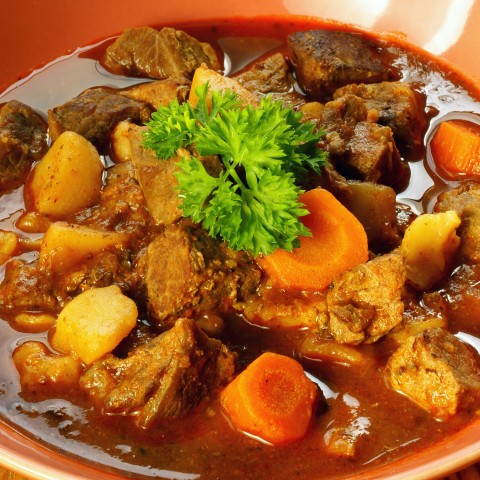
English Words Derived From Other Languages
You’ve learned a lot so far: what Hunglish looks like, how English has influenced Hungarian, and the most common Hungarian words in the English language. Now it’s time for a little fun before we wrap up!
Here are some English words that derive from other languages. How many of these did you know already?
| English Word | Language Origin |
| entrepreneur, utensil | French |
| delicatessen, wanderlust | German |
| guerilla, cigar | Spanish |
| tofu, ketchup | Chinese |
| paparazzi, cartoon | Italian |
How HungarianPod101.com Can Help You Learn More Hungarian
We hope you enjoyed reading this article, and that you now feel more confident about continuing your Hungarian studies. While Hungarian is not the easiest language to learn, its growing number of English loanwords and other English influences can help it seem less daunting. Plus, as globalization continues, the list of English words in Hungarian will surely grow with time.
How many of these words were you surprised to find on our list? Let us know in the comments, and feel free to reach out with any questions!
Are you interested in learning more about the Hungarian language in an easily accessible manner? Then join the HungarianPod101 family. With us, you’ll get unlimited access to many articles, vocabulary lists, and video and audio lessons that will make studying way easier.
Another benefit of becoming a member is the strong sense of community we have to offer. Next time you encounter a bump in your language learning, there will always be someone there to help—whether it’s one of our native Hungarian teachers or a fellow language learner. With us, you’ll never be alone on your exciting Hungarian learning journey.

A Brief Overview of Hungarian Culture

If you want to visit a country, be it for a short-term summer vacation or a long-term business stay, it’s crucial to familiarize yourself with its culture and society. Hungary is no exception.
In fact, understanding Hungarian culture is just as crucial as knowing the key words and phrases.
It will help you better integrate into the society and make your interactions with locals much smoother and more authentic. In addition, showing Hungarians that you’re curious about the culture of Hungary can go a long way toward helping you form relationships.
On this page, you’re going to learn about Hungarian cultural norms, some of the country’s history, and more Hungarian culture facts you should know. If you pay close attention, you can avoid a lot of culture shock during your visit and adapt more easily.
Now, let’s dive in!
 Table of Contents
Table of Contents
- Values and Beliefs
- Religion
- Family
- Work
- Art
- Food
- Traditional Holidays
- How HungarianPod101.com Can Help You Learn More Hungarian
1. Values and Beliefs

Each culture has certain ideals or concepts that serve as the core of its society. The first step in understanding Hungarian culture and customs is to learn about the values and beliefs of its people.
The most important thing you have to know about Hungarian culture is that people value family very much. Family is the cornerstone of Hungarian society.
Hungarians also tend to value relationships in general. They are very sociable people who enjoy interacting with each other as often as possible. Be it a family member’s graduation ceremony or a friendly barbeque, a Hungarian will be there.
Because Hungarians value strong and long-term relationships, and are thus rather emotion-driven, they like sharing. They don’t mind telling people intimate details about their lives, even to a neighbor or a friendly stranger on the bus. Hungarians trust each other and want to bond.
All in all, Hungarians believe in transparency and honesty, so they’re very open with each other about their lives—but not so much about their thoughts! Hungarians tend to dislike confrontation so they usually act nice and polite in all situations, even if they don’t agree with something. This is because they don’t want to hurt or argue with others.
If you find yourself around locals for a longer period of time, you’ll start to notice these elements of Hungarian culture and etiquette yourself.
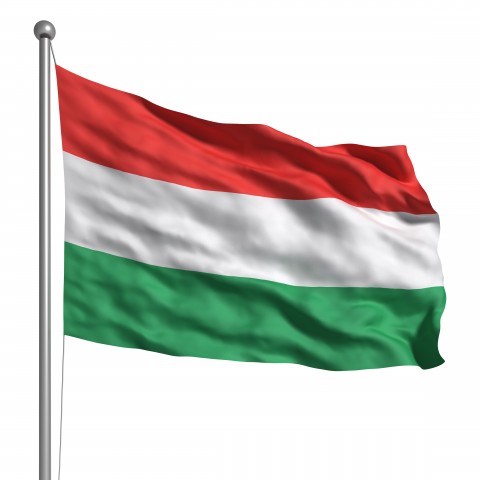
2. Religion
Religion plays a rather large role in Hungarian culture and traditions. Hungary is a very religious nation, with nearly 70% of the population identifying as Roman Catholic.
This bond with Catholicism not only influences many Hungarian holidays, but is also reflected in the fact that many Hungarians are regular church-goers. However, more and more locals are ceasing to practice their religion and remain only informally tied to the Church through baptisms, funerals, or weddings.
You can find other indicators of Hungary’s religiousness in its cities. For example, in cities such as Eger, Esztergom, and Sopron, there are many beautiful, well-maintained, and regularly visited cathedrals. However, we should not forget the beautiful Saint Stephen’s Basilica or the Jewish synagogue on Dohány Street (the largest synagogue in all Europe!), both in the country’s capital city and real cultural center, Budapest.
- → Does this topic catch your interest? Then check out our list of Hungarian Words Related to Religion to expand your vocab on the topic!

3. Family
As we said earlier, Hungarian culture is very much centered around the family. Back in the day, Hungarian families were huge, consisting of several members. Nowadays, the average Hungarian family consists of the parents and one to three kids.
However, Hungarian family culture extends far beyond the nuclear family. Grandparents, cousins, and other relatives are just as valued—in fact, many grandparents share a household with their children and grandchildren, usually in their own separate little room. Consequently, it’s quite rare in Hungary to send older family members to nursing homes when they’re no longer able to live by themselves.
- → You can learn the Hungarian names of different family members on our Family vocabulary list!

4. Work
Hungarian business culture is rather strict. Everybody ‘knows their place’ and knows how to behave around certain people. The business etiquette and culture in Hungary are very much built on hierarchy. This is unlike the business cultures of some other countries, like Denmark for example, where everybody is equal and free to share their ideas about everything. While you can still share ideas in a Hungarian business meeting, you must do so within the framework of the hierarchy.
Besides respecting hierarchy in the workplace, Hungarians are rather detail-oriented. They usually play by the rules and they like to stay in the know about everything that’s going on. For instance, business meetings and appointments should be scheduled way ahead of time—at least two weeks in advance—and the exact time, place, and duration of the meeting should be communicated to them as well.
Punctuality is another top priority in Hungarian work culture. If you have to cancel a meeting, let your Hungarian partners know as soon as possible. If you forget to warn them far enough in advance, they may have a hard time forgiving you, resulting in workplace tension.
- → You can study our vocabulary lists on Talking About Jobs and Work, Talking About the Workplace, and Hungarian Words Related to Meetings to master some relevant vocab!
5. Art
Hungarian music is probably the most famous art form in the country, with Hungarian folk and classical music being crucial parts of Hungarian history and culture. Hungarian folk music includes both traditional music and the genre that evolved from it during the twentieth century folk revival.
Regarding classical music, some of the most admired Hungarian composers of the nineteenth and twentieth centuries include Ferenc Liszt, Béla Bartók, and Zoltán Kodály. Many skilled Hungarian painters lived during this same period. They include:
- Pál Szinyei Merse (Lady in a Purple Dress; The Balloon)
- Mihály Munkácsy (The Settlement of the Magyars in Hungary; Woman Carrying Firewood)
- Bertalan Székely (Leda With Swan)
You can find many of their works in the Hungarian National Gallery.
If you’re thirsty for architecture, Hungary has plenty of buildings that will satisfy you. Just explore historical cities such as Eger, Sopron, Veszprém, and Szentendre. Even Budapest, the capital city of Hungary, bears the traces of Hungarian history and culture.

6. Food
Hungarian food and culture go hand in hand. But before you try any yourself, we must warn you that it’s pretty rich. However, this only means their cuisine will feed your soul just as much as your stomach, so don’t worry about putting on a few pounds during your stay.
You must know that Hungarians love their belly, so their meals are rich in fat, spices, meat, and bread. Also, they like their food spicy and full of Hungarian red paprika, which is the core of most Hungarian dishes. Other ingredients that Hungarians use often include dairy products—like tejföl, túró, and cheese—meat (mostly pork and chicken), and all kinds of seasonal vegetables grown in Hungary.
The signature Hungarian dish—which could even be considered a part of ancient Hungarian culture—is gulyás (“goulash”), which actually means “herdsman.” It is a thick soup that contains beef, pork fat, Hungarian red paprika (of course), onion, red wine, and lots of vegetables.
Another Hungarian specialty is lángos, which is deep-fried dough usually topped with garlic, tejföl (“sour cream”), and cheese.
Hungarians love their stomach, so they definitely like cooking! Keep your eyes peeled for our upcoming lesson on Hungarian foods, in which we’ll share a few popular and easy-to-make recipes for you to try at home.

7. Traditional Holidays
There are several holidays that play a major role in Hungarian culture. Many of them reflect the religious nature of the country, while others have to do with the country’s history. Take a look at five of the most important Hungarian holidays.
- → If you would like to learn even more about traditional Hungarian holidays, you can visit our Hungarian Holidays Archive to read up on individual holidays.
- → You can also learn what Hungarians call different Life Events in our relevant vocab list.
A- New Year’s Eve
On New Year’s Eve, there are usually lots of house parties, outdoor concerts, and programs that are organized by the government of Hungary. There are special programs on TV as well, usually old recordings from the 1990s called Sas Kabaré.
B- Memorial Day of the Revolution and Independence War in 1848
The Revolution of 1848 on March 15 is one of the most important events in Hungarian history and culture. During the Revolution, Hungarians fought for independence from the Habsburg Monarchy.
C- Easter
Easter celebrates the resurrection of Jesus and the upcoming spring. On this day, boys would traditionally ‘water’ girls with buckets of cold water! Nowadays, this tradition is still honored, mostly in the countryside. However, most Hungarians use perfume instead.
D- Saint Stephen’s Day
Saint Stephen’s Day is the National Foundation Day of Hungary on August 20. St. Stephen was the first Hungarian king and he brought Christianity to the Hungarian people.
E- Christmas
Christmas is the biggest holiday in Hungary. Families get together and celebrate not only the birth of Jesus Christ, but also family and love. They sit around a big table full of traditional Hungarian Christmas dishes such as stuffed cabbage, fisherman’s soup, and bejgli, and reminisce about the year that’s about to pass.

8. How HungarianPod101.com Can Help You Learn More Hungarian
Now that you know the Hungarian culture a bit better, you can go to Hungary and experience it first-hand. However, if you would like to dive into the topic a bit more, we have several articles, vocabulary lists, and lessons that would be perfect for you. We linked to them throughout the page, but you can also explore our website and see what else you find there.
At HungarianPod101.com, we deliver the best possible content for you so that you can maximize your learning potential while having fun.
If you would like to get more out of HungarianPod101, sign up now and study with us. When you join our tight-knit language learning family, you’ll be able to access tons of audio and video lessons, amongst many other exclusive features.
If you still have any questions about Hungarian culture, don’t hesitate to ask us in the comments section. We’re always glad to help you out!
Which aspect of Hungarian culture was the most interesting to you?

The Ultimate Guide to Traditional Hungarian Food

Have you ever been on vacation in a foreign country and wanted to try out the local food? If so, you know how hard it is to know exactly what to order. But you can rest assured that you won’t face this problem in Hungary after reading our Hungarian food guide!
In this article, we’ll introduce you to a variety of Hungarian cuisine staples so you can get an idea of what to expect. We’ll also provide you with some easy Hungarian recipes that you can try to make at home. All you need is an open heart, the desire to discover, and a piece of paper to take notes and write down the names of the Hungarian food dishes that make you drool.
But before we begin…
 Table of Contents
Table of Contents
- What is Hungarian Food?
- Must-Try Dishes in Hungarian Restaurants
- Authentic Hungarian Food vs. Overseas Hungarian Food
- Unique Hungarian Foods and Drinks
- Food-Related Vocabulary
- Bonus: Simple Recipes to Make Authentic Hungarian Food at Home
- How HungarianPod101.com Makes Studying Fun
1. What is Hungarian Food?
Hungarian food refers to the traditional dishes that Hungarian people eat.
Hungarians love their stomach and that’s why our dishes are rich in fat, meat, and bread. (Hungarians could even eat bread with pasta!)
We also like our food spicy, and paprika is the heart of Hungarian cuisine. Other ingredients that often star in our meals include:
- dairy products, such as tejföl (“sour cream”), túró (“cottage cheese”), and other cheeses
- meat (mostly pork and chicken)
- all kinds of seasonal vegetables that can be grown in Hungary
Before continuing, you may find it useful to go over our food-themed vocabulary lists:
Now, are you ready for this greasy, juicy culinary experience? Let’s go then.

2. Must-Try Dishes in Hungarian Restaurants
In this section, we’ll introduce you to the five most popular Hungarian foods. First, it’s important to note that the majority of traditional dishes in Hungary are actually Hungarian peasant food.
Now, let’s see what they are.
Gulyás(leves)
Main ingredients:
- beef
- yellow onion
- garlic
- pork fat
- Hungarian red paprika & green paprika
- red wine
- tomato, potato, carrot, root and leaf parsley, celeriac
This one is the traditional Hungarian food, without a doubt. If you were to ask someone to name a Hungarian specialty, gulyás (goulash) would certainly be their first answer. Here’s a fun fact for you: gulyás actually means “herdsman.”
To make this famous dish like a true Hungarian would, cook it over an open fire. And if you want to eat it like Hungarians do, don’t forget the bread!
(Csirke)pörkölt
Main ingredients:
- chicken thighs
- yellow onion
- pork fat
- Hungarian red paprika (ground)
- tomato
- water
This traditional Hungarian food is similar to a stew. While chicken is a popular meat option in this meal, people can also make pörkölt with other types of meat such as pork. The important thing here is the Hungarian powdered red paprika.
Another traditional food called nokedli (a Hungarian noodle) is typically served with this meal.
Halászlé
Main ingredients:
- common carp, catfish
- yellow onion
- Hungarian red paprika (ground)
- water
Halászlé (“fisherman’s soup”) is a traditional Hungarian Christmas food, so it’s the perfect choice if you want to spice up your Christmas family dinner at home. The broth has a powdered paprika base, and the soup is made with thick chunks of fish. Hungarians usually eat this dish with bread.
If you feel courageous, you can find full Hungarian Christmas food recipes online to make. Don’t forget to let us know how they turned out.
Hortobágyi palacsinta
Main ingredients:
- pork thighs
- yellow onion
- Hungarian red paprika (ground), green paprika
- tomato
- parsley
- flour
- eggs
- cow’s milk
- tejföl
Hortobágyi palacsinta is a kind of salty pancake that got its name from the Hungarian region (and village) of Hortobágy. The pancake (which resembles the French type more than the American type) is filled with ground meat and a creamy (due to the tejföl) paprika sauce.
Rántott sajt
Main ingredients:
- Trappista cheese
- eggs
- flour
- bread crumbs
- oil
Last but not least, another typical and famous Hungarian food is breaded cheese. Hungarians like to, can, and will bread and then fry everything, including cheese. They usually put french fries or rice on the plate as a side dish, and they like to dip the cheese into tartar sauce (or cranberry sauce, if it’s Camembert cheese).
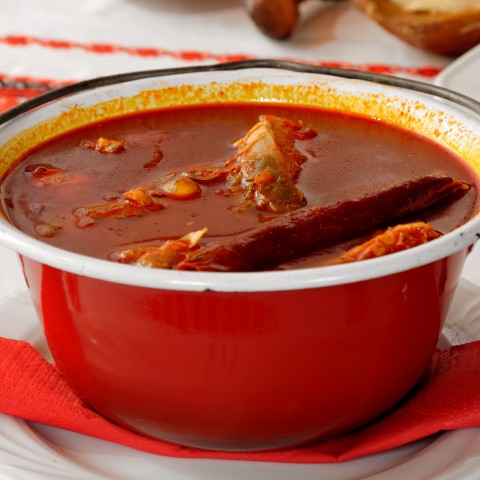
3. Authentic Hungarian Food vs. Overseas Hungarian Food
As Hungarian food casts its spell on the world, it’s becoming increasingly common to find Hungarian restaurants and food shops outside the borders of Hungary. However, overseas Hungarian food may not always offer the same level of flavor and authenticity as that made in-country.
As we stated earlier, one of the key ingredients of Hungarian cuisine is the seasonal vegetables grown in Hungary. Sometimes, Hungarian food store or restaurant owners don’t bother to (or simply can’t afford to) export vegetables from Hungary. Not to mention that shipping the products over long distances isn’t very environmentally friendly.
When in search of authentic Hungarian food, you must take into consideration who the owner of the restaurant or shop is. Some entrepreneurs see the potential of Hungarian food to reach across borders and cultures, and decide to open a restaurant or shop without deep knowledge of how the food is actually made. While they might find recipes online, they may still miss the essentials that only a true Hungarian could implement. This is why native Hungarians are most capable of running successful Hungarian restaurants and crafting high-quality Hungarian meals.
For example, there are overseas Hungarian food shops and restaurants in Austria, New York, Sydney, and London. However, the menu is often altered to appeal more to foreigners so that Hungarian food would seem more familiar to them. An example of this is lángos, a Hungarian dish of deep-fried dough topped with garlic, tejföl, and cheese. In Sydney, it’s sold as ‘garlic bread.’ But lángos is actually lightyears away from that!
We advise you to check the history and the owner of any overseas Hungarian food store or restaurant you’re visiting to decide whether the place is trustworthy. However, if you have the chance, you should definitely try authentic Hungarian food in its own kingdom.

4. Unique Hungarian Foods and Drinks
Hungarian food often leaves foreigners thinking “Whaaat?” But you have only seen the tip of the iceberg.
Now we’re going to show you five truly unique Hungarian foods and drinks that you can only find in Hungary. Since we’ve been talking about main dishes so far, it’s time to introduce you to some Hungarian desserts and beverages.
- → If you want to dive further into this topic, make sure you look at our Culture Class lesson on Sweets and Desserts!
Somlói galuska
Ah… Somlói galuska, a dish that is dear to all Hungarians. And no wonder! It’s a delicious sponge cake with layers of chocolate cream and walnut kernel, spiced with rum and crowned with whipped cream. This Hungarian dessert usually has raisins in it, too.
Mákos guba
Many Hungarians associate mákos guba with their childhood. It’s kifli (a type of Hungarian bread) that’s soaked in a mixture of warm milk, vanilla, sugar, and poppy seeds. Note that poppy seeds are very common in Hungarian desserts.
Bejgli
Here is yet another Hungarian Christmas food. Bejgli is a pastry roll traditionally filled with poppy seeds or walnuts. Nowadays, you can find versions that are filled with chestnuts, sour cherries, or dried plums.
Pálinka
Pálinka is a traditional fruit brandy that all Hungarians are proud of. It can be fermented from almost any kind of fruit, but the most common ones are plum and apricot. It’s usually 37.5% – 86% ABV. Pretty strong, to say the least.
Tokaji aszú
Tokaji aszú is the most famous wine of Hungary. Aszú is a type of Tokaji wine that comes from Tokaj, Hungary. The berries of this sweet wine are picked individually. The final beverage is kept in wooden casks.

5. Food-Related Vocabulary
By now, we’re sure you’re excited to try some famous Hungarian cuisine yourself! Following is a list of words and phrases that might come in handy while you’re visiting a restaurant in Hungary.
If you want even more practical phrases, see our vocabulary lists of Useful Phrases for Ordering Food and Vocabulary and Phrases at the Restaurant.
Szeretnék egy üveg bort.
In English: I would like a bottle of wine.
- “I would like” – Szeretnék
- “a bottle of” – egy üveg
- “wine” – bor
Van tejtermék ebben az ételben?
In English: Is there any dairy (products) in this dish?
- “dairy product” – tejtermék
- “dish” – étel
Mi a mai ajánlat?
In English: What are today’s specials?
- “today’s special” – mai ajánlat
Please note that in Hungarian, you would ask this question in singular form rather than plural.
Beszélhetek a szakáccsal? Nagyon meg vagyok elégedve az étellel.
In English: Can I speak to the chef? I’m very satisfied with the food.
- “to speak” – beszélni
- “chef” – szakács
- “satisfied” – elégedett
- “food” – étel
Szeretnék fizetni a vacsoráért.
In English: I’d like to pay for the dinner.
- “to pay” – fizetni
- “dinner” – vacsora

6. Bonus: Simple Recipes to Make Authentic Hungarian Food at Home
Now that you’re familiar with some of the most popular Hungarian foods, we’ll teach you how to make Hungarian food at home. We’ve included three simple recipes that anyone can make, so be courageous in the kitchen and get ready for a delicious culinary journey.
Recipe #1: Mákos guba
Ingredients:
- 8 ps. kifli
- 1 l. cow’s milk
- 2 packs vanilla sugar
- 15 dkg poppy seed, ground
- 15 dkg powdered sugar
Method:
- Cut the kiflis into 1 cm-wide circles. Pour the mixture of warmed-up milk and vanilla sugar on them in a pot.
- Once the kifli circles soak up the milk, sprinkle them with the poppy seed and sugar mixture. Serve immediately.
Recipe #2: Babfőzelék
We haven’t yet discussed this type of Hungarian food, though it’s an important one. Főzelék can be described as a very, very thick soup—and Hungarians love it! They can turn almost any vegetable into one.
Ingredients:
- 30 dkg dry beans, soaked the night before
- 1-2 bay leaf
- 1 small yellow onion (chopped)
- 2 cloves garlic (crushed)
- 2 Tbsp flour
- 4 Tbsp oil
- 1 tsp powdered Hungarian red paprika
- 2 dl tejföl
- 1 tsp sugar
- 1 tsp vinegar, 10%
- salt
- pepper (ground)
Method:
- Cook beans over medium heat, for approx. 10-15 minutes, then drain. In the meantime, in another pot, boil water and pour it over the beans until they are just covered. This prevents it from puffing. Put the bay leaves and salt in it, and cook until tender.
- While the beans are cooking (over low heat), whisk together oil and flour, then add the chopped onion and garlic and sauté until glassy. Remove from fire and add paprika, tejföl, and 1 dl of cold water. Whisk until combined and without lumps. Add the mixture to the beans and bring to a boil while constantly stirring. When boiling, reduce the heat and leave it like that. If the főzelék seems to be too thick, add more water. In the meantime, add sugar, salt, pepper, and vinegar to suit your taste.
Recipe #3: Meggyleves
Ingredients:
- 50 dkg sour cherry
- 8 dl water
- sugar
- 5 ps. dried clove
- 1 p. cinnamon stick (2 cm)
- juice of 1/2 lemon and zest
- 5-6 lemongrass leaves
- 2 pack vanilla sugar
- pinch of salt
- 1/2 pack vanilla pudding powder
- 2 dl sour cream
Method:
- Put the pitted sour cherries in a pot and pour water on them. Sweeten with sugar and vanilla sugar to your liking. Zest a lemon into it, and put it in the pot with the lemongrass leaves and the rest of the spices. Bring to a boil and then cook for approx. 10 minutes on low heat.
- When it’s cooked, mush the sour cherries with a mixer. If you want, you can half-mush them so there are a few chunks still left. Then, put it back on the stove and bring to a boil again.
- Whisk the sour cream together with the vanilla pudding powder and, while constantly stirring, pour it into the soup.
- Cook for a few more minutes, until the soup is thick enough.
- This soup is usually served cold, so you might want to wait until it cools down or put it in the fridge for 30 minutes. Enjoy.
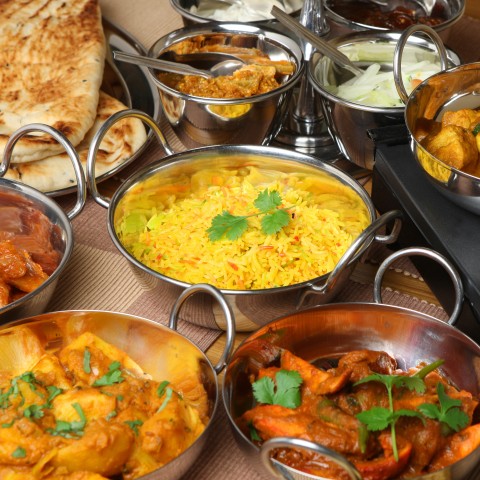
7. How HungarianPod101.com Makes Studying Fun
Today, you explored the most important traditional Hungarian foods, and you even learned how to make some of them at home!
We hope we brought you—or at least your stomach—closer to the Hungarian culture. It’s truly amazing to get to know a culture through its foods; cuisine plays just as large a role in a nation’s culture as things like habits and architecture do!
We recommend that you continue exploring this topic first-hand. Whether you visit Hungary to try some authentic dishes, dine at a nearby Hungarian restaurant, or try your hand at Hungarian cuisine in the kitchen, making this country’s cuisine a part of your life will greatly improve your language learning!
If you would like to learn more about the Hungarian language and culture in a fun and exciting way, join the HungarianPod101 family. Our lessons are designed to keep you engaged and entertained, while providing practical information and learning materials.
Before you go: Which of these Hungarian foods do you most want to try? How many of these dishes have you had already? We look forward to hearing from you!

Change in Hungary: 1848 Revolution Memorial Day
1848 was a time of forradalom (revolution), upheaval, and general discontent throughout Europe. Several different nations vied to achieve their unique political and social goals, and the Hungarian revolts of 1848 were particularly significant.
In this article, you’ll learn about the 1848 Revolution of Hungary and how it’s commemorated today. Let’s get started!

1. What is 1848 Revolution Memorial Day?
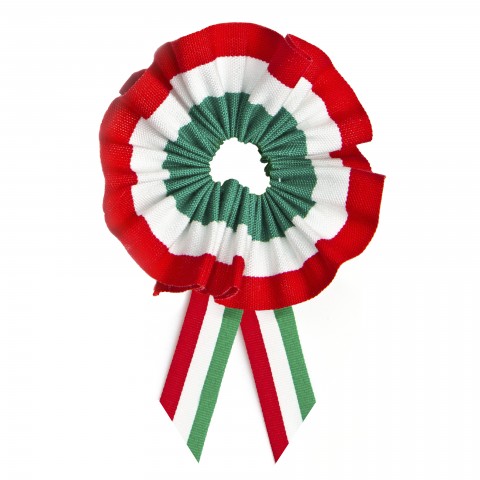
The Hungarian Revolution of 1848 began on March 15, 1848, as Hungary followed the lead of many other European nations. Much of Europe was caught in a great upheaval during this time, with different nations trying to achieve varying—though similar—goals regarding the political and societal status of their people. Of all the 1848 revolutions in Europe, the one in Hungary lasted the longest and was arguably one of the most successful; the Hungarian uprising didn’t end until August 1849, when Austria employed the help of Russia.
For Hungary, the revolutions of 1848 largely focused on gaining autonomy from the Habsburg Monarchy and having its 12 Points of Demands met. These 12 Points, co-written by famous poet Petőfi Sándor (Sándor Petőfi), were read out by the nationalists throughout Pest on March 15.
A major leader of the revolution was Lajos Kossuth, often thought of as the face of the revolution. He was a radicalist who sought to have Hungary’s goals met in the fastest way possible, through any means necessary.
Hungary was successful toward the beginning, but the revolution ultimately failed after the Russian army came to Austria’s aid. However, the events of the revolution paved the way for Hungary to reach its goals later on.
- → Want to learn more about key figures in Hungary’s history? Then head over to our Culture Class lesson on Historical Figures!
2. Celebrations and Key Events

There are a few different celebrations and observances that take place to commemorate the 1848 Hungarian Revolution. If you happen to be walking the streets of Hungary, you’ll have the privilege of admiring the colors of the Hungarian flag all around you—the flag itself waving in front of buildings, people wearing red, white, and green clothing, and a few even donning kokárdák (cockades).
Most of the events for this holiday take place at Castle Hill and the Hungarian Parliament building. People gather at these locations to hear speeches from government leaders and to join in singing the National Song of Hungary. They can also see the raising of the Hungarian flag in Kossuth Square, and enter the Parliament and a variety of museums for free.
There are also plenty of kid- and family-friendly activities: guided horseback riding, folk music and dancing performances, theatrical performances, arts and crafts, fencing demonstrations, and more! If you plan on visiting, keep in mind that there will be plenty of restaurants open on this day, as well as food-tasting events you can experience. Those who get the day off may also enjoy a trip to the nearby Budapest Baths, where they can relax in the thermal baths and get a massage.
- → Castle Hill and the Parliament Building are only two of the most popular locations in the country. Do you know of any other Tourist Attractions in Hungary?
3. More on Sándor Petőfi

Sándor Petőfi may be best known for his major role in the 1848 Hungarian Revolution, though his poetry was well-loved at the time and the poet was known for his unique writing style. Today, he is the national poet of Hungary. In addition to co-writing the notorious 12 Points and penning the poem Nemzeti Dal, Petőfi crafted the National Song of Hungary and a number of other famous poems (such as John the Valiant).
As for his personal life, Sándor Petőfi married a woman named Júlia Szendrey (also a poet, as well as a translator), and they had a son named Zoltán. He is thought to have died in one of the final battles of the revolution, though this has never been confirmed because his body was never found.
4. Vocabulary to Know for 1848 Revolution Memorial Day

Ready to expand your Hungarian vocabulary? Then let’s review some of the words and phrases from this article, plus a few more!
- Szaval (Recite) – verb
- Az 1848-as forradalom ünnepe (1848 Revolution Day) – proper noun
- Petőfi Sándor (Sándor Petőfi) – proper noun
- Forradalom (Revolution) – noun
- Nemzeti Múzeum (National Museum) – proper noun
- Kormány (Government) – noun
- Harc (Combat) – noun
- Kokárda (Cockade) – noun
- Csata (Battle) – noun
- Szabadságharc (War of independence) – noun
- Nyomda (Press) – noun
- Hadsereg (Army) – noun
To practice your pronunciation, be sure to visit our 1848 Revolution Day vocabulary list. It features audio recordings that you can listen to and repeat after!
Final Thoughts
In this article, you learned about the revolutions of 1848, Hungary’s role in them, and more. The 1848 Hungarian Revolution may have been only one of many such revolutions of the time, but it was also one of the most significant. Though the revolutions did not end as hoped, it paved the way for Hungary’s later autonomy and independence.
If you enjoyed this article and would like to learn more about Hungarian culture and holidays, we think you’ll like the following articles on HungarianPod101.com:
- Gyermeknap: Celebrating Children’s Day in Hungary
- St. Stephen of Hungary Feast Day Celebrations
- Santa Claus Day in Hungary: Have You Been Naughty or Nice?
Thinking about learning the Hungarian language, or looking for the best place to continue your studies? We recommend:
- 10 Basic Hungarian Questions and Answers You Must Know
- The 10 Most Useful Hungarian Sentence Patterns to Know
It’s our goal to make every aspect of your language learning journey both effective and enjoyable, so we hope to see you around!

The Top 45 Quotes in Hungarian for Language Learners

Have you ever been in a situation where everything lined up just right…but the perfect quote was missing? We’ve all been there. That’s why it’s important to become familiar with quotes and quips beforehand, so that when the time comes you know exactly what to say.
Well, this is your lucky day! In this article, we’re going to list 45 quotes in Hungarian with translations so that you can find the perfect one for any occasion. Now you’ll never have to miss out on a quote opportunity.
If some of these quotes seem familiar to you, it’s not just your mind playing tricks on you. We’ve intentionally translated several famous quotes in Hungarian from English so that the text wouldn’t be so alien to you. The rest of the quotes—those that are not cited—are just common phrases used in everyday life.
Ready yet? Then let’s dive in.
 Table of Contents
Table of Contents
- Quotes About Success
- Quotes About Life
- Quotes About Time
- Quotes About Love
- Quotes About Family
- Quotes About Friendship
- Quotes About Food
- Quotes About Health
- Quotes About Language Learning
- How HungarianPod101.com Motivates You to Become Better and Better
Quotes About Success
In this section, you’re going to read a few motivational quotes in Hungarian about success. If you need a little encouragement for your next step toward your goals, put some of these quotes up on your wall or somewhere else you’ll see them often—that will certainly give you the boost of self-esteem you need!
- → When you finish reading through these, you can also check out our vocabulary list of the Top 11 Hungarian Quotes About Success for more inspiration and motivation!
1. “Behind every successful man there’s a lot of unsuccessful years.”
Author: Bob Brown
In Hungarian: Minden sikeres ember mögött rengeteg sikertelen év van.
This quote emphasizes how trial-and-error is necessary for success. It takes time to better yourself and reach your goals.
- “behind” – mögött
- “every” – minden
- “successful” – sikeres
- “unsuccessful” – sikertelen
2. “Success is not in what you have, but who you are.”
Author: Robert Foster Bennett
In Hungarian: A siker nem arról szól, hogy mid van, hanem hogy ki vagy.
This quote about success says that the only thing that’s important is who you are as a person. The things you’ve gathered, such as money, really hold no weight in how successful you are.
3. “Don’t wait for an opportunity. Create it.”
In Hungarian: Ne várj lehetőségre! Teremtsd meg!
This is a terrific motivational quote. Those who wait around miss lots of opportunities. Instead of waiting forever, you should act now!
- “to wait” – vár
- “opportunity” – lehetőség
- “to create” – megteremt
4. “Don’t tell people your plans. Show them your results.”
In Hungarian: Ne mondd el másoknak a terveidet! Mutasd meg nekik az eredményt!
Those who tell people what they would do instead of what they did are wasting their time.
- “to tell” – mond
- “to show” – mutat
- “result” – eredmény
5. “There is no elevator to success. You have to take the stairs.”
Author: Zig Ziglar
In Hungarian: A sikerhez nincs lift. A lépcsőt kell megmásznod.
This quote is similar to the first one in this section. It implies that success takes time—just like taking the stairs—and doesn’t happen as quickly as one would like.
- “elevator” – lift
- “success” – siker
- “stairs” – lépcső

Quotes About Life
Life can be difficult, positive, and negative all at once, but the important thing is that you always look at the bright side. These life quotes in Hungarian aim to help you see the silver lining.
- → If you still need more inspiration after reading these, you can visit our vocabulary list of the Top 10 Inspirational Quotes.
6. “The best time for new beginnings is now.”
In Hungarian: A legjobb idő az új kezdetekhez most van.
This quote encourages you to take opportunities right away and to begin bettering yourself now. If you hesitate, you won’t see results until much later.
- “best time” – legjobb idő
- “new beginning” – új kezdet
- “now” – most
7. “Rise above the storm and you will find the sunshine.”
Author: Mario Fernández
In Hungarian: Emelkedj felül a viharon, és megtalálod a napfényt!
This quote means that if you’re able to overcome negativity in your life and see the good in things, you’ll find the silver lining.
- “to rise” – emelkedik
- “above” – felül
- “storm” – vihar
- “to find” – megtalál
- “sunshine” – napfény
8. “Life is too short to wake up with regrets.”
In Hungarian: Az élet túl rövid ahhoz, hogy megbánással ébredjünk fel.
According to this saying, you shouldn’t regret anything you’ve done, because life is too short to get caught up in things like that. Live life to the fullest and regret nothing.
- “life” – élet
- “too short” – túl rövid
- “to wake up” – felébred
- “regret” – megbánás
9. “Dream as if you’ll live forever, live as if you’ll die today.”
Author: James Dean
In Hungarian: Álmodj úgy, mintha örökké élnél, élj úgy, mintha ma halnál meg!
This quote focuses on living life to the fullest. It says that you should seize every opportunity because you don’t know if you’ll ever have another chance.
- “to dream” – álmodik
- “to live” – él
- “forever” – örökké
- “to die” – meghal
- “today” – ma
10. “In three words I can sum up everything I learnt about life: it goes on.”
Author: Robert Frost
In Hungarian: Két szóban össze tudok foglalni mindent, amit az életről tanultam: megy tovább.
This quote is somewhat consoling. It says that you shouldn’t worry about what’s in the past because life goes on. The past is in the past, and you should focus on the future and the opportunities it offers.
In Hungarian, “life goes on” can be translated in two words. That’s why we wrote két (“two”) instead of három (“three”).
- “to sum up” – összefoglal
- “to learn” – tanul
- “about (the) life” – az életről
- “to go” – megy

Quotes About Time
We all know that time flies, making it our most precious possession.
The following quotes in Hungarian emphasize the importance of time and encourage you to seize the day. They’re perfect to put up on your wall!
- → Want to expand your vocabulary? Check out our list of the Essential Adverbs of Frequency and Time.
11. “Early to bed and early to rise makes a man healthy, wealthy, and wise.”
Author: Benjamin Franklin
In Hungarian: A korán fekvés és korán kelés egészségessé, gazdaggá és bölccsé teszi az embert.
This quote says that getting up early is the best way to achieve your goals and live a good life. This is because rising early gives you more time to get things done. In other words: The early bird catches the worm.
- “early” – korán
- “bed” – ágy
- “healthy” – egészséges
- “wealthy” – gazdag
- “wise” – bölcs
12. “The two most powerful warriors are patience and time.”
Author: Leo Tolstoy
In Hungarian: A két legerősebb harcos a türelem és az idő.
This saying means that the only two things you should be concerned about are patience and the time you have.
- “most powerful” – legerősebb
- “warrior” – harcos
- “patience” – türelem
- “time” – idő
13. “Be not afraid of growing slowly, be afraid only of standing still.”
In Hungarian: Ne félj attól, hogy lassan haladsz, félj attól, hogy egy helyben állsz!
This quote means that not making any progress is all you need to worry about. As long as you’re making even a little bit of progress, you’re doing good!
- “to be afraid” – fél
- “slowly” – lassan
- “to stand still” – egy helyben áll
14. “There are no shortcuts to any place worth going.”
In Hungarian: Nincs rövidebb út azokhoz a helyekhez, ahová érdemes elmenni.
This quote says that you have to work hard for the greatest things in life. No success comes easily or quickly.
- “shortcut” – rövidebb út
- “place” – hely
- “to be worth something” – érdemes
- “to go” – elmegy
15. “There’s only one thing more precious than our time and that’s who we spend it on.”
Author: Leo Christopher
In Hungarian: Egyetlen dolog van, ami értékesebb az időnknél, mégpedig az, akire szánjuk azt.
According to Leo Christopher, our time is indeed precious because no-one can gain more of it. That makes it important to choose wisely who we spend our limited time with.
- “thing” – dolog
- “precious” – értékes
- “to spend (time)” – szánni

Quotes About Love
And now, probably the most important section of them all: love quotes. If you want to make your Hungarian partner swoon, all you have to do is present them with one of these romantic quotes in Hungarian. We promise you it will pay off later!
Ready to make hearts melt? Let’s go.
- → For more sweet quotes to whisper in your partner’s ear, see our vocabulary list of the Top 10 Quotes About Love!
→ We know that things don’t always work out in a relationship… If you’re recovering from a heartache, these Breakup Quotes in Hungarian can help!
16. “Dream without fear, love without limits.”
In Hungarian: Álmodj félelem nélkül, szeress határok nélkül!
Do you want the key to a happy life? Be fearless and love everybody unconditionally.
- “fear” – félelem
- “to love” – szeretni
- “limit” – határ
- “…-less” – nélkül
17. “Love is not what you say. Love is what you do.”
In Hungarian: A szeretet nem arról szól, mit mondasz. A szerelem arról szól, mit teszel.
It doesn’t matter if someone says nice things to you if they don’t act accordingly.
- “love” – szeretet, szerelem
- “to say” – mond
- “to do” – csinál, tesz
18. “To the world you may be one person, but to one person you may be the world.”
Author: Taylor Hanson
In Hungarian: A világnak lehet, hogy csak egy valaki vagy, de egy valakinek lehet, hogy a világ vagy.
Even if you feel small sometimes in this big world, you must not forget that there’s at least one person that finds you unique and out of this world.
- “the world” – a világ
- “one person” – egy valaki
19. “You don’t marry someone you can live with. You marry someone you can’t live without.”
In Hungarian: Nem valaki olyanhoz mész hozzá, akivel tudsz élni. Ahhoz mész hozzá, aki nélkül nem tudsz.
This quote encourages you not to settle for less than what you deserve and truly desire. There are so many mediocre things in life that love should not be one of them.
- “to marry” – hozzámegy
- “to live” – él
- “without” – nélkül
20. “Sometimes I look at you and wonder how I got to be so lucky.”
In Hungarian: Néha rád nézek, és azon gondolkodom, hogy lehetek ilyen szerencsés.
Surprise your partner with this quote during a romantic date night and make them swoon!
- “sometimes” – néha
- “to look” – néz
- “to wonder” – gondolkodik
- “lucky” – szerencsés

Quotes About Family
Your family is just as important as your lover, if not even more important! Here are some inspirational quotes in Hungarian that talk about family.
- → If you want more great quotes after reading through these, check out our vocabulary list of the Top 10 Quotes About Family!
21. “Family: where life begins and love never ends.”
In Hungarian: Család: ahol az élet kezdődik és ahol a szeretetnek sosincs vége.
You can always count on the love of your family because you’re bound by blood.
- “family” – család
- “where” – ahol
- “to begin” – kezdődik
- “to end” – végződik
22. “Family is like branches of a tree. We grow in different directions yet our roots remain as one.”
In Hungarian: A család olyan, mint egy fa ágai. Különböző irányba megyünk, a gyökereink mégis ugyanazok maradnak.
This Hungarian quote explains how, even though we might choose different paths, we’ll always remember that we came from the same place.
- “branch” – ág
- “tree” – fa
- “to grow” – nő
- “different direction” – különböző irány
- “root” – gyökér
- “to remain” – marad
23. “Family is anyone who loves you unconditionally.”
In Hungarian: Családtag bárki, aki feltétel nélkül szeret téged.
According to this quote, family doesn’t always mean being bound by blood. Family is the unconditional love you feel toward another person.
- “to love” – szeret
- “unconditionally” – feltétel nélkül
24. “The strength of a family, like the strength of an army, lies in its loyalty to each other.”
Author: Mario Puzo
In Hungarian: A család ereje, csakúgy, mint egy sereg ereje, az egymás iránti hűségből fakad.
It’s crucial that you’re loyal to family members because they are the ones who will be there for you no matter what. And in that loyalty, you can find strength.
- “strength” – erő
- “army” – sereg
- “to lie” – fakad
- “loyalty” – hűség
- “each other” – egymás
25. “Family is not about blood. It’s about who is willing to hold your hand when you need it the most.”
In Hungarian: A család nem a vérrokonságról szól, hanem arról, hogy ki hajlandó fogni a kezed, amikor a legnagyobb szükséged van rá.
This is another quote that claims family is not about being bound by blood, but rather about who will stand next to you during the darkest of times.
- “blood” – vér
- “to be willing to” – hajlandó
- “to hold” – fog, tart
- “to need” – szüksége van

Quotes About Friendship
Who isn’t thankful for their friends being by their side all the time? Why don’t you thank them for being such great friends with these cool and heart-warming quotes? You can create a nice card for them, pop one of these quotes in it, and there you go: a thoughtful just-because gift.
- → If these aren’t enough to warm your heart, head over to our list of the Top 10 Quotes About Friendship.
26. “It’s not that diamonds are a girl’s best friend, but it’s your best friends who are your diamonds.”
Author: Gina Barreca
In Hungarian: Nem arról van szó, hogy egy lány legjobb barátai az ékszerei, hanem hogy a legjobb barátaid az ékszereid.
This quote emphasizes that friendship is more valuable to a person than materialistic things.
- “diamond” – gyémánt
- “jewelry” – ékszer
- “girl” – lány
- “friend” – barát
27. “Good friends are hard to find, harder to leave, and impossible to forget.”
In Hungarian: Egy jó barátot nehéz találni, még nehezebb elhagyni, és lehetetlen elfelejteni.
This quote about friends describes the defining footprint that good friends leave in a person’s life.
- “hard” – nehéz
- “to find” – találni
- “to leave” – elhagy
- “impossible” – lehetetlen
- “to forget” – elfelejt
28. “There are friends, there is family, and then there are friends who become family.”
In Hungarian: Vannak barátok, vannak családtagok, és vannak barátok, akik családtagokká válnak.
Sometimes, friends can be so supportive and play such a crucial role in your life that it almost feels as if they were family, too.
- “there are” – vannak
- “there is” – van
29. “Walking with a friend in the dark is better than walking alone in the light.”
Author: Helen Keller
In Hungarian: Egy baráttal sétálni a sötétben jobb, mint egyedül sétálni a fényben.
Helen Keller talks about the importance of friends here. Friends can help us through some very dark times that we wouldn’t be able to get through alone, and that is priceless.
- “to walk” – sétál
- “the dark” – a sötétség
- “better” – jobb
- “than” – mint
- “alone” – egyedül
- “rain” – eső
30. “A good friend knows all your best stories. A best friend has lived them with you.”
In Hungarian: Egy barát ismeri a legjobb sztorijaidat. Egy legjobb barát átélte őket veled.
This quote describes the difference between regular friends and best friends. There’s nothing better than the bond you have with your best friend. Sometimes, it feels like they are your siblings, having been there for you on every step of your journey.
- “good” – jó
- “to know” – ismer, tud
- “story” – sztori, történet
- “to live” – átél
- “with you” – veled

Quotes About Food
We really don’t praise food enough. Well, not anymore! We’ve dedicated an entire section to quotes about food, so there you go. Fill your heart (and stomach) up with this handful of quotes. Feast your eyes…
- → Warning: These quotes might make you hungry. If so, why not see our list of Hungarian words for different Foods?
31. “Food is the ingredient that binds us together.”
In Hungarian: Az étel az az összetevő, ami összeköt minket.
Food is an international language that has the power to bring everybody together.
- “food” – étel
- “ingredient” – hozzávaló
- “to bind” – összeköt
- “together” – együtt
32. “The only time to eat diet food is when you’re waiting for the steak to cook.”
Author: Julia Child
In Hungarian: Egyedül akkor szabad diétás ételt enni, amikor várunk, hogy megsüljön a bélszín.
Julia Child supports peace of mind with this quote. She says that food is to be enjoyed and that one shouldn’t suppress the desire for good, nutritious food.
- “to eat” – eszik
- “diet food” – diétás étel
- “steak” – bélszín
- “to (be) cook(ed)” – megsülni
33. “People who love to eat are the best people.”
Author: Julia Child
In Hungarian: Azok az emberek, akik imádnak enni, a legjobb emberek.
People who make sure that their belly is full and satisfied can only be happy, right? Thus, they are fantastic to be around.
34. “Food tastes better when you eat it with your family.”
In Hungarian: Az ételnek jobb íze van, mikor a családoddal eszed.
Food unifies. So, what could be better than enjoying fine cuisine with those you love? That’s right: probably nothing.
- “to taste better” – jobb íze van
35. “I followed my heart and it led me to the fridge.”
In Hungarian: Követtem a szívemet, és a hűtőhöz vezetett.
Everybody tells you to follow your heart, and it always takes you to the best of places…
- “to follow” – követ
- “heart” – szív
- “to lead” – vezet
- “fridge” – hűtő
- “refrigerator” – hűtőszekrény

Quotes About Health
Health is very important, but sometimes it’s difficult to keep up a healthy lifestyle. Here are some motivational quotes in Hungarian that touch on the topic of health.
36. “It is health that is real wealth and not (pieces of) gold and silver.”
Author: Mahatma Gandhi
In Hungarian: Az egészség az igazi gazdagság, nem pedig az arany és az ezüst.
Gandhi speaks the truth here—the truth that nobody realizes until something grave happens. Take care of yourself and the ones you love.
- “health” – egészség
- “real” – igazi
- “wealth” – gazdagság
- “gold” – arany
- “silver” – ezüst
37. “Your body is your most priceless possession. Take care of it.”
In Hungarian: A tested az igazán megfizethetetlen tulajdonod. Vigyázz rá!
Without a healthy body, you can’t really do anything. By maintaining a healthy lifestyle and trying to stay healthy, you’re keeping your body in good enough condition to live life to the fullest.
- “body” – test
- “priceless” – megfizethetetlen
- “possession” – tulajdon
- “to take care” – vigyázni valamire
38. “To keep the body in good health is a duty, otherwise we shall not be able to keep our mind strong and clear.”
Author: Buddha
In Hungarian: Az a feladatunk, hogy jó egészségben tartsuk a testet, másképp nem fogjuk tudni erősen és tisztán tartani elménket.
Both physical health and mental health are crucial in living a happy life. And guess what? Those two go hand in hand. Take care of your body and your mind will thank you for it.
- “to keep” – tartani
- “duty” – feladat
- “otherwise” – másképp(en)
- “to be able” – tud
- “mind” – elme
- “strong” – erős
- “clear” – tiszta
By the way, if you want to learn the names of different religions in Hungarian, see our Religions vocabulary list.
39. “An ounce of prevention is worth a pound of cure.”
Author: Benjamin Franklin
In Hungarian: Egy uncia megelőzés annyit ér, mint egy font gyógymód.
Prevention should always be a priority. Taking care of yourself from the beginning is a much better tactic than panicking and trying to cure the illness you could have prevented.
- “ounce” – uncia
- “prevention” – megelőzés
- “to be worth” – ér valamennyit
- “pound” – font
- “cure” – gyógymód
40. “Take care of your body. It’s the only place you have to live.”
Author: Jim Rohn
In Hungarian: Vigyázz a testedre! Az az egyetlen hely, ahol muszáj élned.
In most cases, you can leave a place when you feel uncomfortable there—but this is not the case with your body. If you’re uncomfortable in your own skin, that needs to be changed straight away. That’s why you must take care of your body and love yourself.
- “the only” – az egyetlen
- “place” – hely
- “have to” – muszáj, kell
- “to live” – élni

Quotes About Language Learning
Just like sticking to our diet or making other healthy life choices, language learning is a challenge. You can easily become unmotivated or lazy, especially when you’re learning on your own.
Let’s take a look at some inspirational quotes in Hungarian that will boost your motivation levels every time you look at them. We recommend keeping these written down somewhere near your working or learning space!
- → If you need more motivation, you can also visit our list of the Top 10 Quotes About Language Learning.
41. “To learn a language is to have one more window from which to look at the world.”
Hungarian: Egy nyelv tanulásával újabb ablak nyílik ki, amin keresztül szemlélhetjük a világot.
Learning a language might be challenging at times, but it will allow you to understand the mentality of a whole nation later. Definitely worth it!
- “to learn” – tanul
- “language” – nyelv
- “window” – ablak
- “to look” – néz
- “world” – világ
42. “Learning another language is like becoming another person.”
Author: Haruki Murakami
In Hungarian: Egy másik nyelv megtanulása olyan, mint egy másik emberré válni.
Each language has its own grammar rules and sentence structures. That’s why speaking a foreign language allows you to think about things from a very different perspective.
- “another” – egy másik
- “to become” – válik valamivé
- “person” – ember
43. “Don’t be afraid to make mistakes. In learning languages, nothing feels better than getting it right after getting it wrong.”
Author: Professor Usama Soltan
In Hungarian: Ne félj hibázni! Nyelvtanulás esetén semmi sem jobb annál, mint amikor valamit jól mondasz miután rosszul mondtad.
The biggest (and actually, the only real) mistake you can make when learning languages is being afraid. Loosen up, embrace the mistakes you make, and learn from them.
- “to make a mistake” – hibázik
- “nothing” – semmi
- “right” – jól
- “wrong” – rosszul
44. “To have another language is to possess a second soul.”
Author: Charlemagne
In Hungarian: Tudni egy másik nyelven olyan, mintha lenne egy másik lelkünk.
Speaking a language distinct from your mother tongue allows you to look at the world in a different way, almost as if you were looking at it with someone else’s eyes.
- “to possess” – birtokol, van (neki)
- “second” – második
- “soul” – lélek
45. “Learn a language and you’ll avoid a war.”
In Hungarian: Tanulj meg egy nyelvet, és kerülj el egy háborút!
Based on what we touched on previously, if everyone would speak more languages, we would be able to understand more nations. And if we could find common ground, we would never have to go to war again.
- “to avoid” – elkerül
- “war” – háború

How HungarianPod101.com Motivates You to Become Better and Better
You now have 45 quotes in Hungarian up your sleeves to use when the right moment arrives. From motivational quotes about success to romantic love quotes in Hungarian and beyond, you should have no trouble finding the right words once you memorize these phrases.
If you have any questions, don’t hesitate to reach out to us in the comments. Also, let us know which of these quotes you liked the most!
Become a part of the HungarianPod101 family for more articles like this one, as well as audio lessons, well-structured lesson pathways, and much more. In the meantime, happy language learning!













